Sondra Sherman
Sondra Sherman is a painter and jewelry designer based in San Diego, California. Her work explores the role of jewelry as a conveyor of personal identity and subjective psychological experience in a societal context. She graduated with degrees in Painting and Jewelry from the Tyler School of Art in Philadelphia, then attended the Academy of Fine Arts in Munich, where she lived and worked for a decade. She has taught at institutions including Rhode Island School of Design and Savannah College of Art and Design, and has served as head of the Jewelry and Metalwork program at San Diego State University since 2010. She has exhibited and lectured extensively to international audiences. Her work is featured in museum collections such as the Los Angeles County Museum of Art (LACMA), the Museum of Art and Design, and the Metropolitan Museum of Art (both in New York City).
https://sondra-sherman.com/home.html
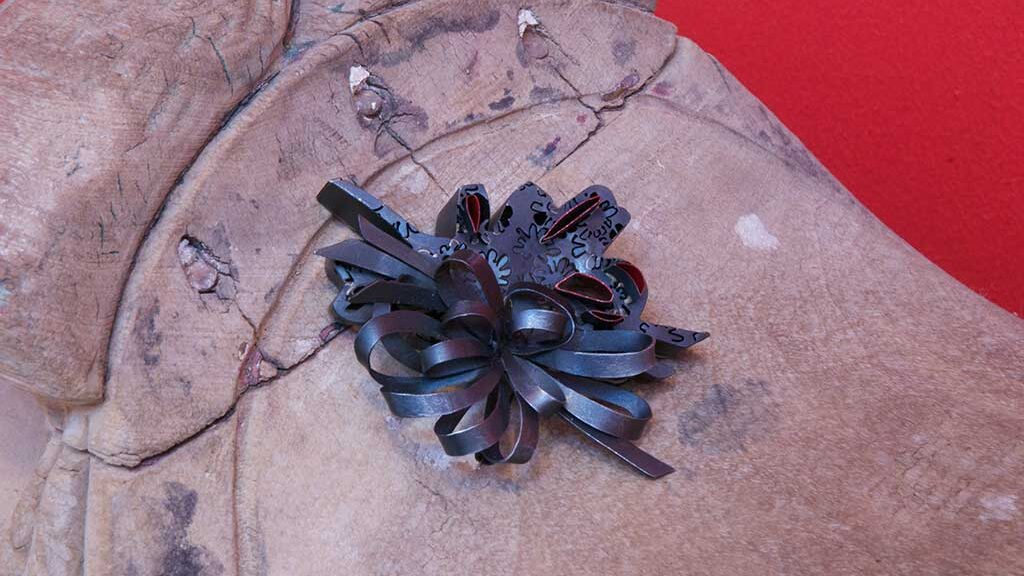
Mary Jane Verniere
Mary Jane Verniere is a multimedia artist and blacksmith based in the Los Angeles area. Born in Washington state, Verniere began her career in a fabrication studio, where she learned diverse metalworking techniques. She eventually took a position under Brian Brazeall in the metal shop at Mission San Juan Capistrano. This sparked her interest in traditional blacksmithing, which has been central to her artistic endeavors ever since. She spent the following two decades on the West Coast of Ireland creating sculptural and functional metal works. She also joined Umha Aois: an annual symposium of Bronze Age enthusiasts whose research has advanced the field of experimental archaeology.
Verniere is currently the executive director of Adam’s Forge, a metal shop in Simi Valley, California with the mission of facilitating self-expression through the ancient art of blacksmithing.
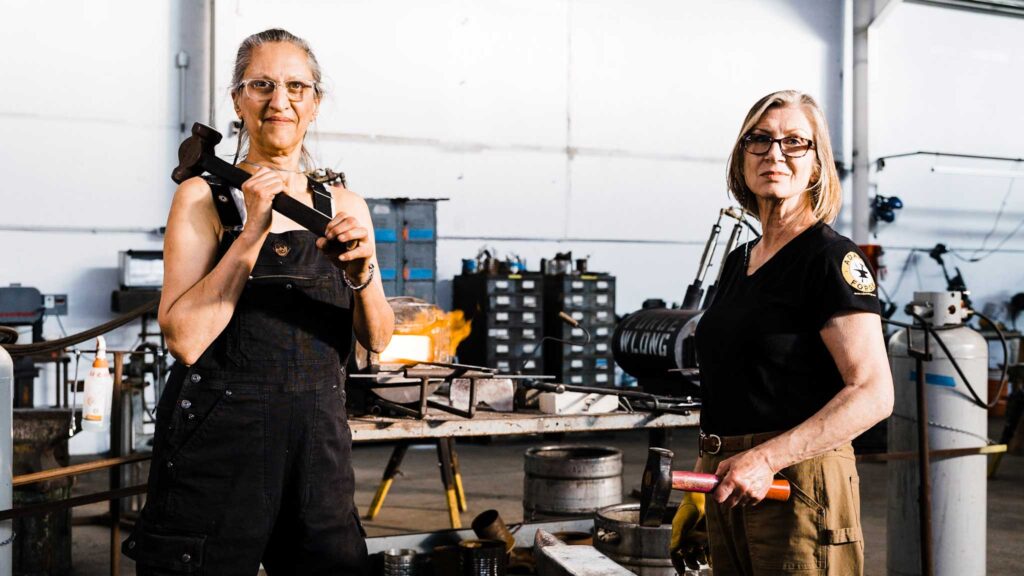
Heather McLarty
Heather McLarty is an artist and blacksmith of over two decades. Having majored in technical theater in college, McLarty began her professional career as a prop builder for regional theater companies throughout the western United States. Though she often utilized metalsmithing in this role, she eventually became unsatisfied with the ephemeral nature of theatrical design. Focusing her efforts on blacksmithing allowed her to connect with an ancient human practice; a living tradition with a millennia-long history.
McLarty enjoys the slow and challenging labor inherent in this craft. She has completed public and private commissions throughout the United States, including gates, railings, sheet work, and furniture. Her work is characterized by serpentine lines and contrasting textures. Her completed surfaces often evoke the plasticity of hot metal. She has been involved with Adam’s Forge for a number of years – a nonprofit organization which hosts blacksmithing workshops and educational programs – and currently sits on its board of directors. She lives and works in Highland Park, Los Angeles.
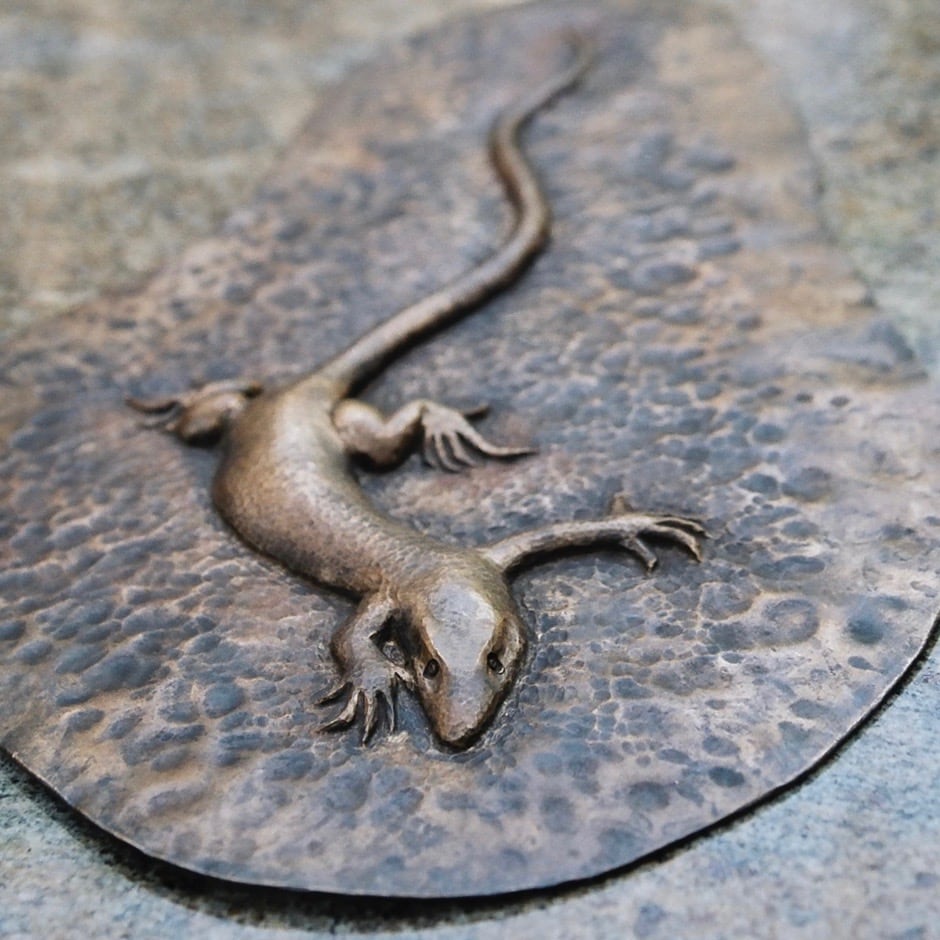
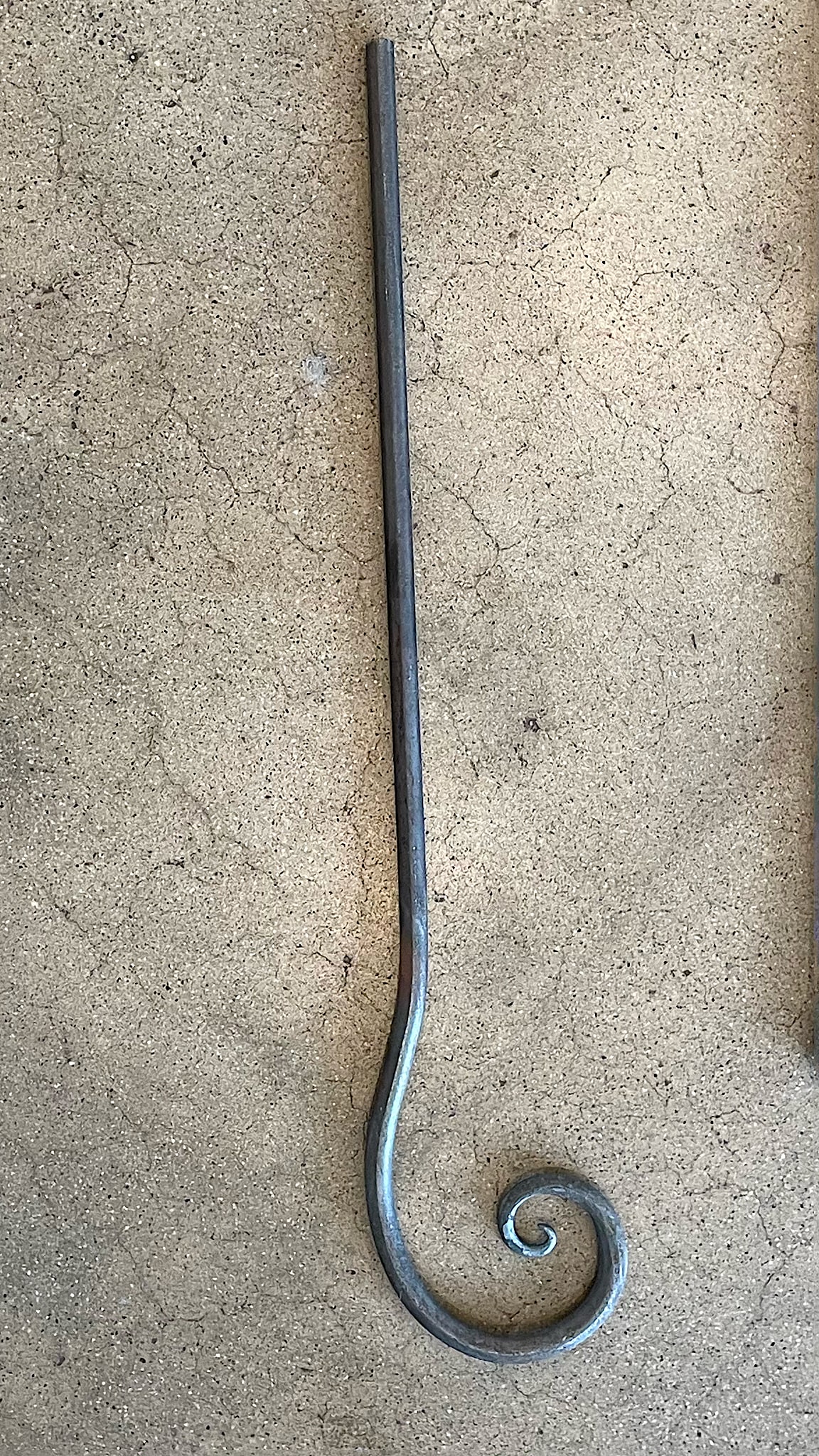
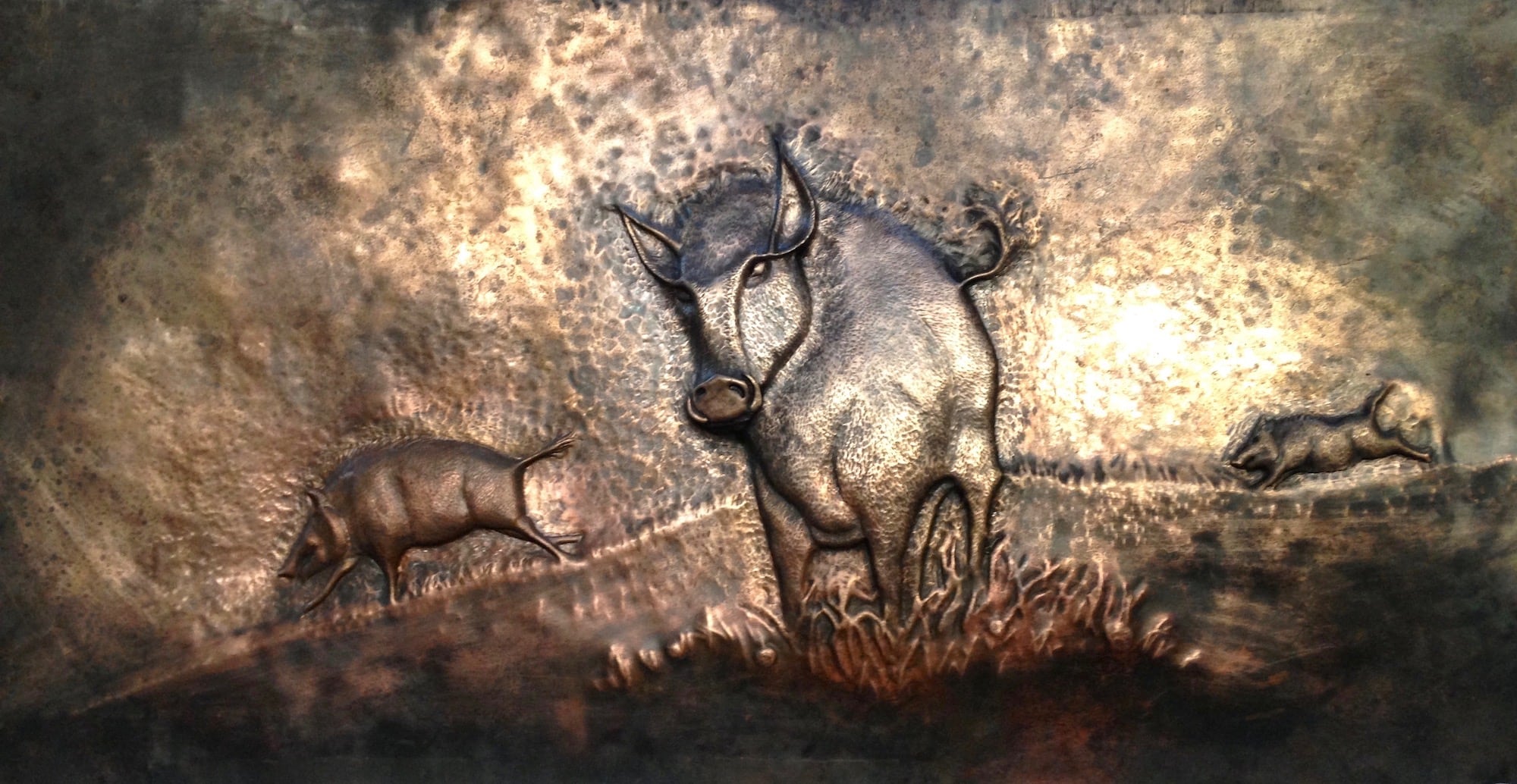
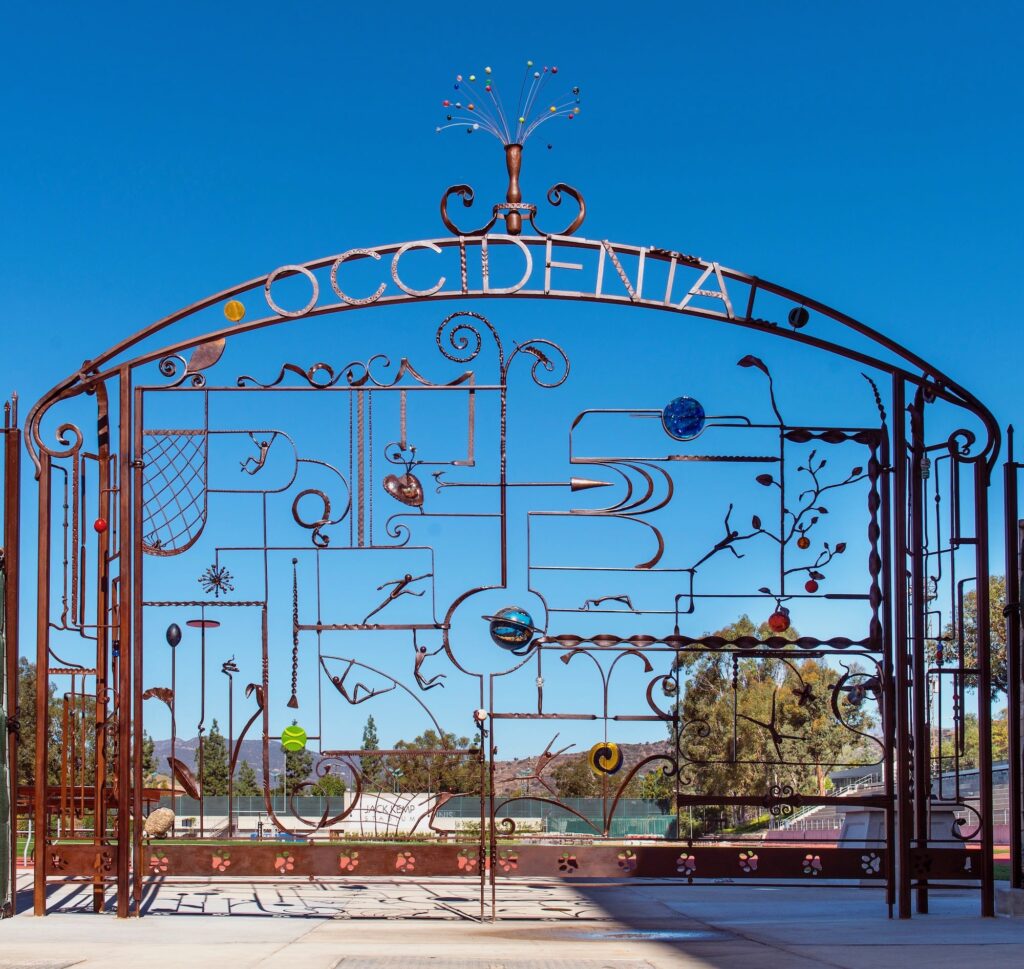
Kristin Beeler
Kristin Beeler is an educator, metalsmith, and jewelry designer. In 2023, she joined the faculty of Duncan Jordanstone College of Art and Design in Dundee, Scotland. Prior to this, Beeler served as an art professor and coordinator of jewelry and metalwork at Long Beach City College beginning in 2003. Originally from Appalachia, Beeler received her BFA in Crafts and Applied Design at Berea College in Berea, KY. She went on to complete her MFA in Jewelry from the University of Arizona, and completed additional graduate studies as an apprentice in Florence, Italy and Bangkok,Thailand.
Beeler’s work explores notions of beauty and vulnerability, conceiving of the body as a physical locus of memory and history. Her work is formally characterized by iridescent materials such as abalone, and the juxtaposition of hard and soft elements. She often layers delicate lines and shapes on top of each other, creating an effect which is simultaneously sturdy and ethereal. Beeler’s work is collected by institutions including the Boston Museum of Fine Arts, the Appalachian Center for Craft, and Berea College. She regularly exhibits and lectures internationally.
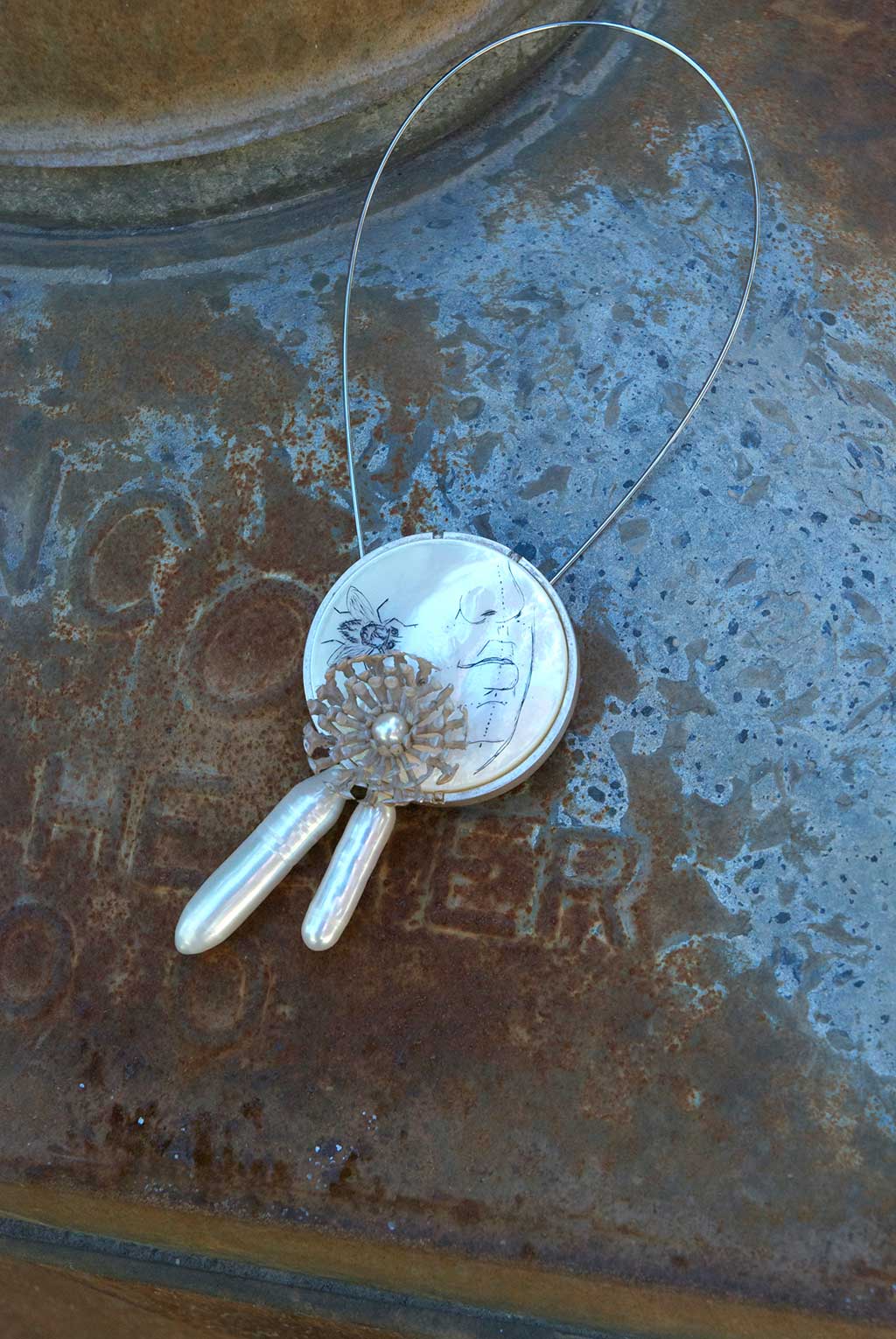
Permanent Collection Highlights
This exhibition spans across the vibrant, ever-evolving field of contemporary craft. The gathered objects are made by some of the exceptional and inspiring artists who have been featured in Craft in America’s documentary since 2007, when the first episodes aired on PBS. From function to sculpture and cultural practice, this multimedia show is a glimpse into the innovation and artistry of contemporary craft innovators from across the states. Craft in America has been assembling a small and burgeoning permanent collection over the past 15 years and this is a chance to view some of the exemplary, vibrant works. Many of these objects were either made while the artist was filmed for the series or discussed by the artist in the episodes.
View a sequence of shorts from episodes related to the works in the exhibition: Click on the playlist icon ![]() to view the full playlist.
to view the full playlist.
Virtual Gallery
Click and drag, or use your arrow keys, to see a 360º view of the virtual space, including tags with object information and images.
Image Gallery:
View the objects in the exhibition below and click on each image for additional information.
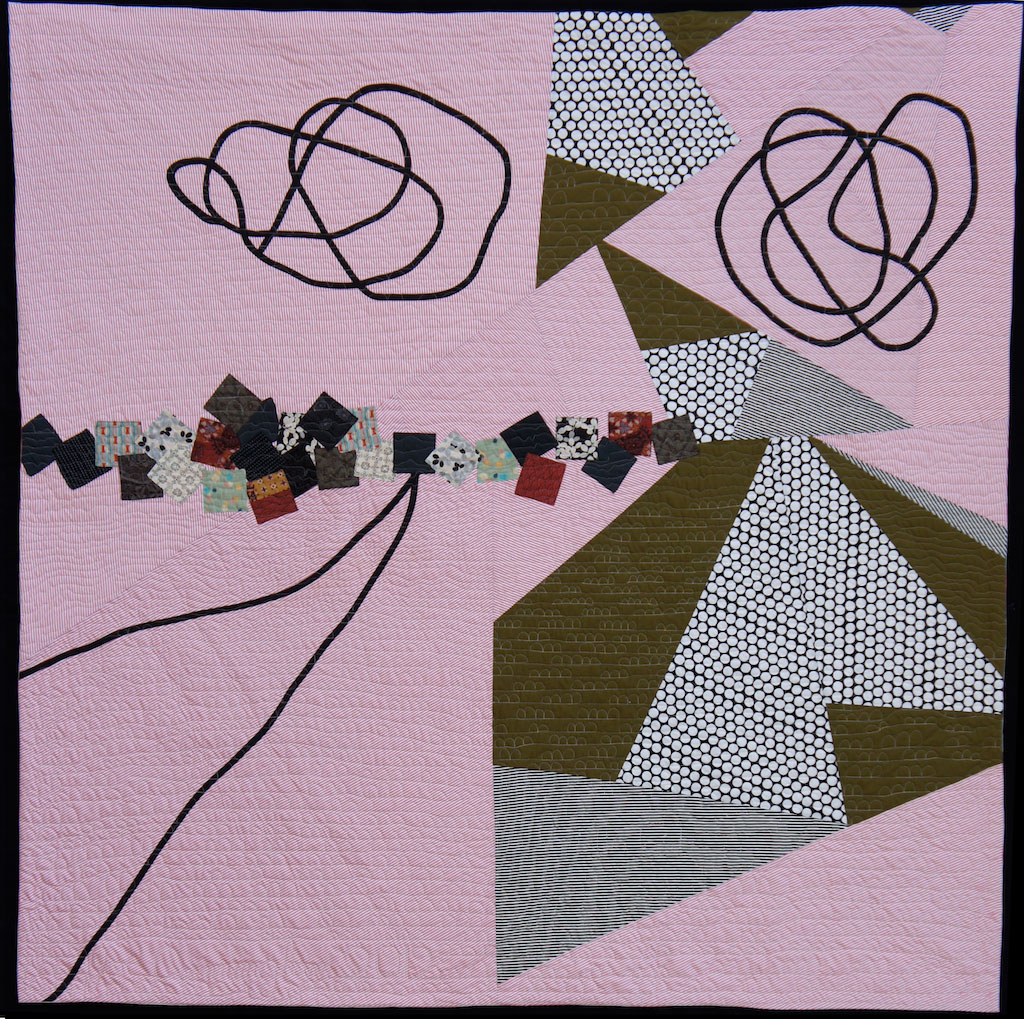
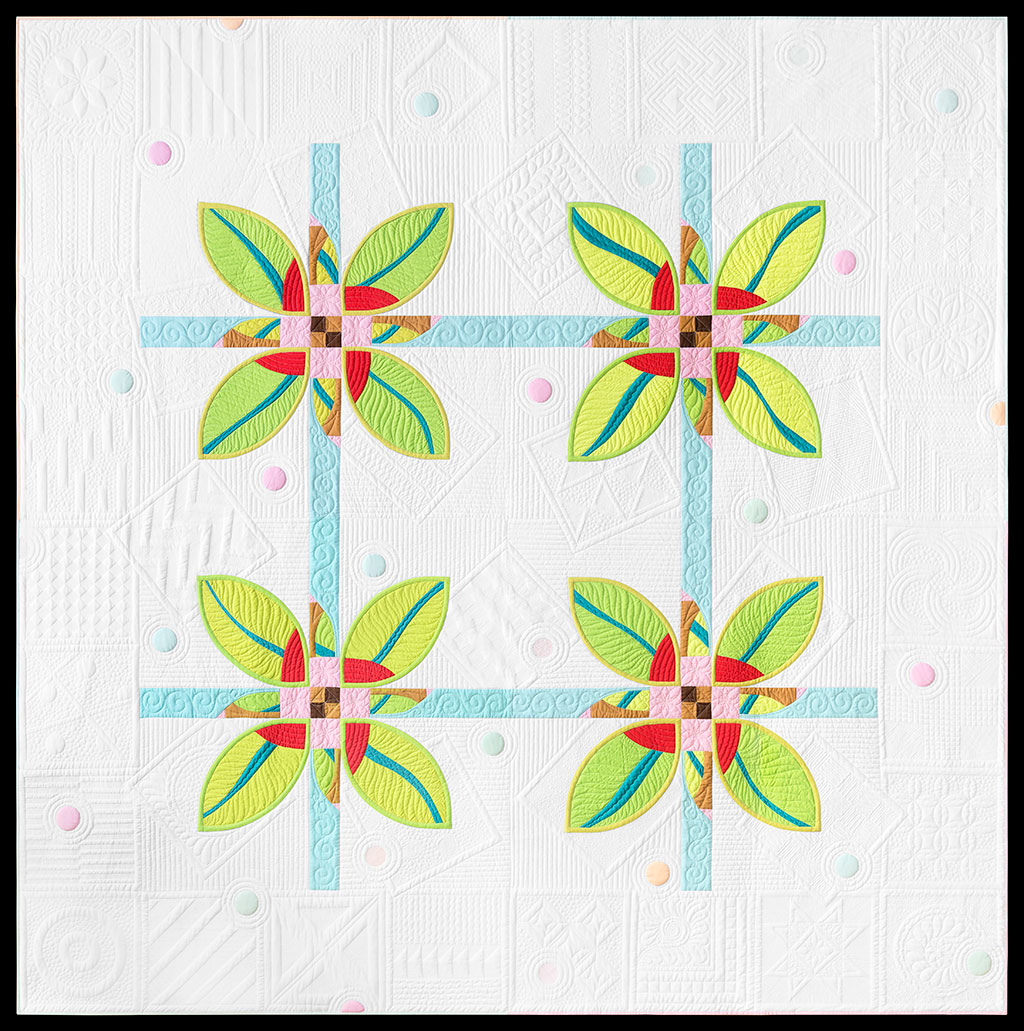
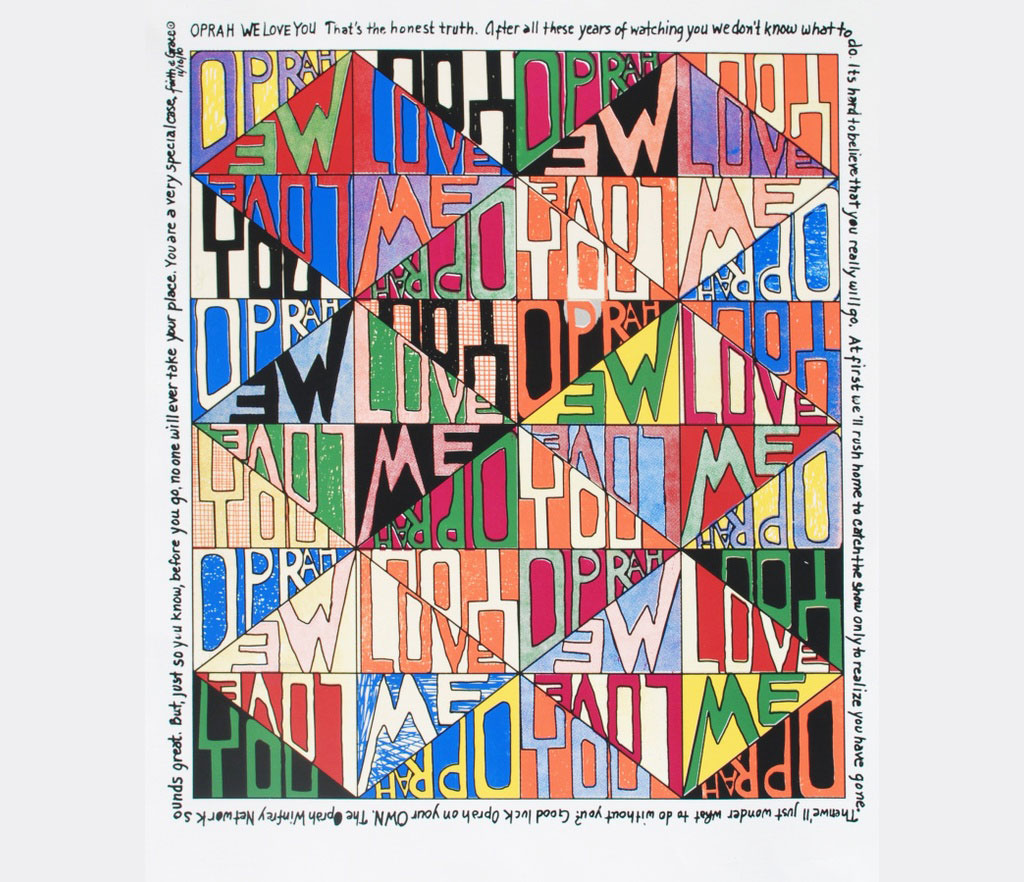
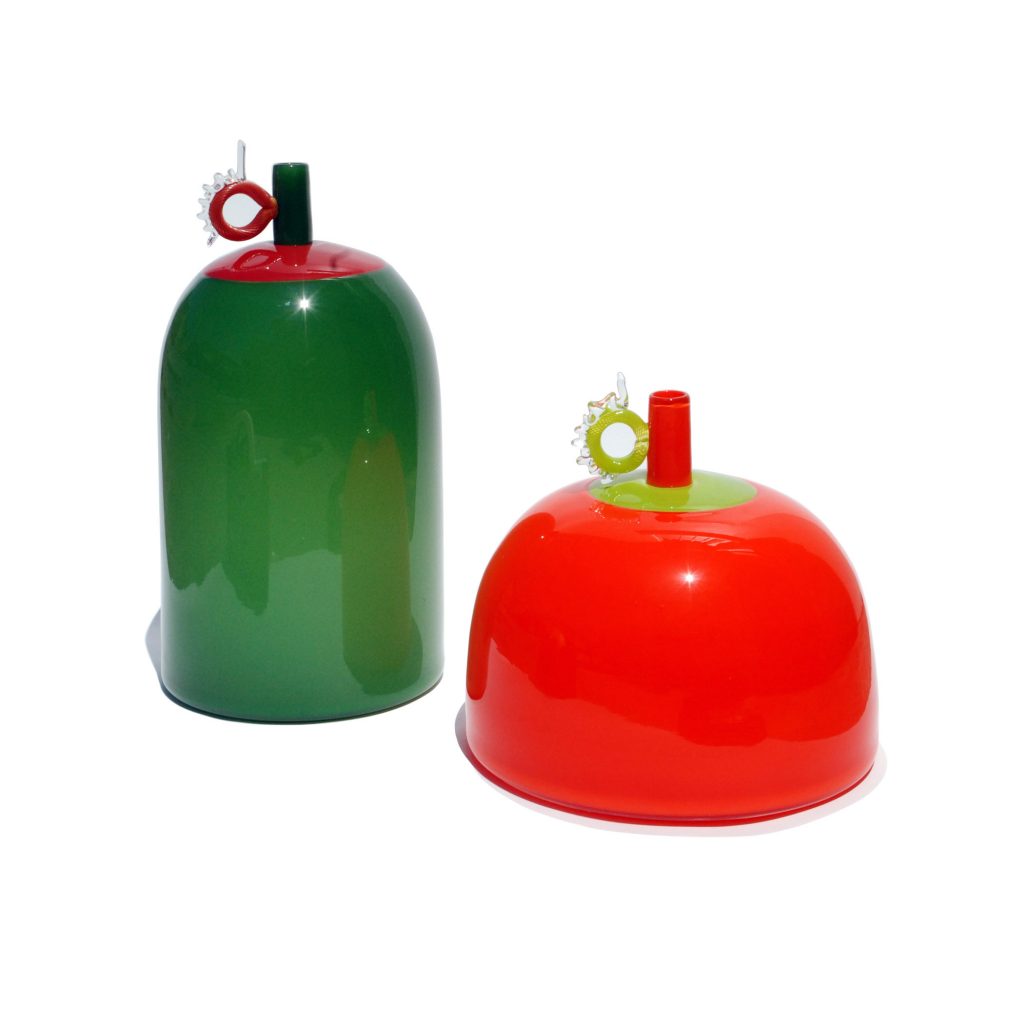
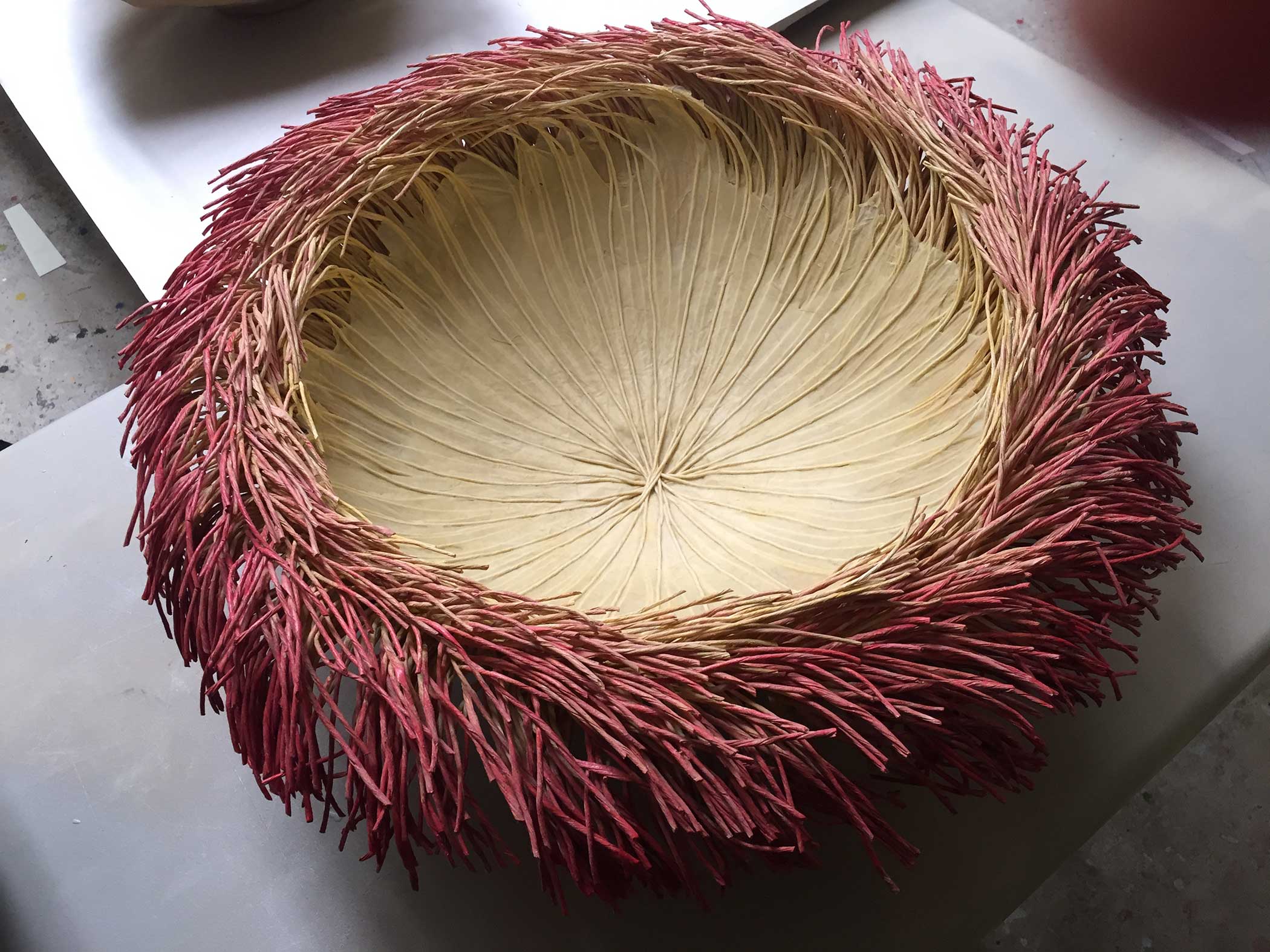
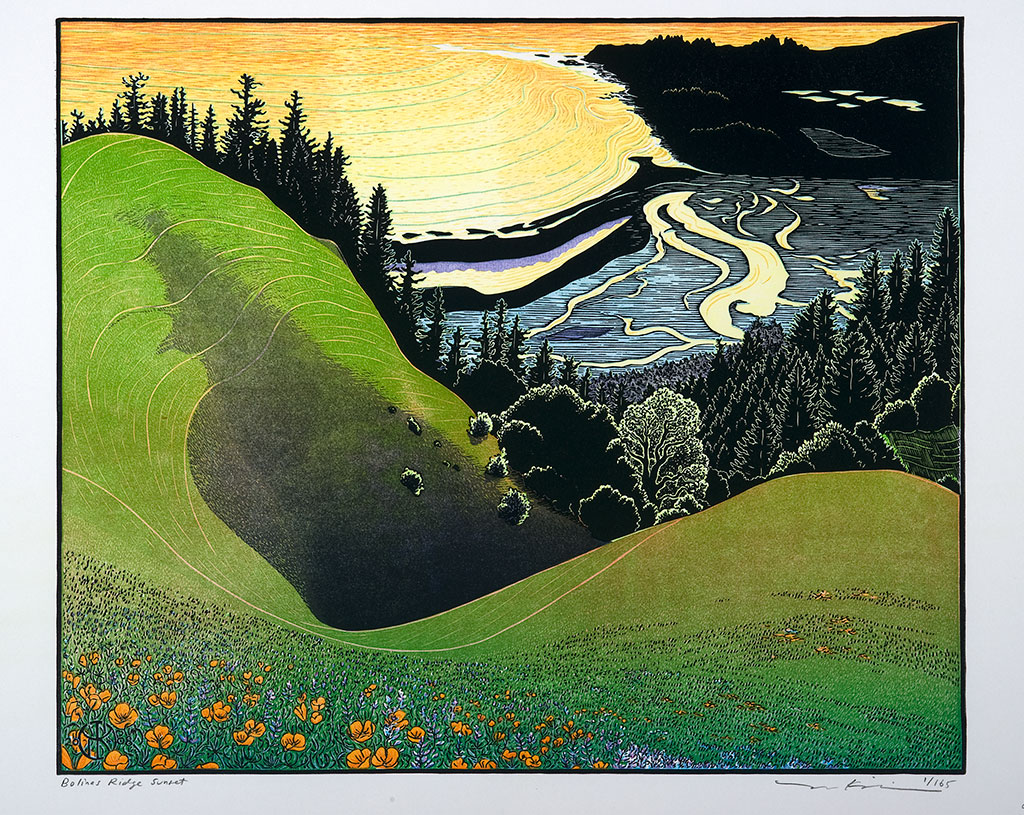
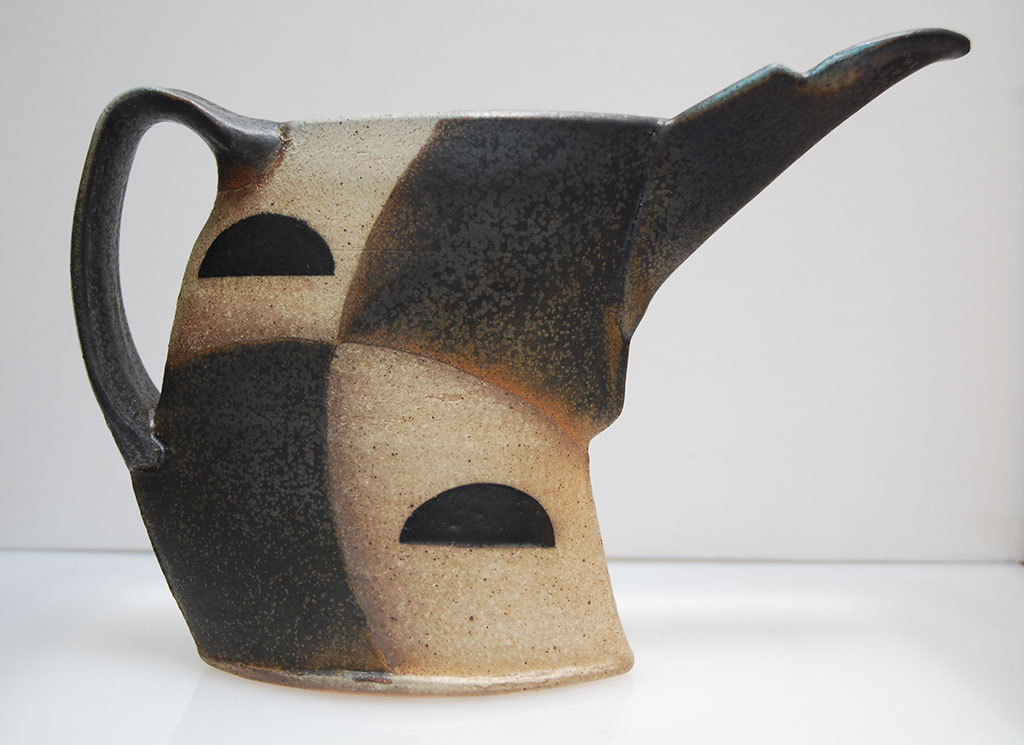
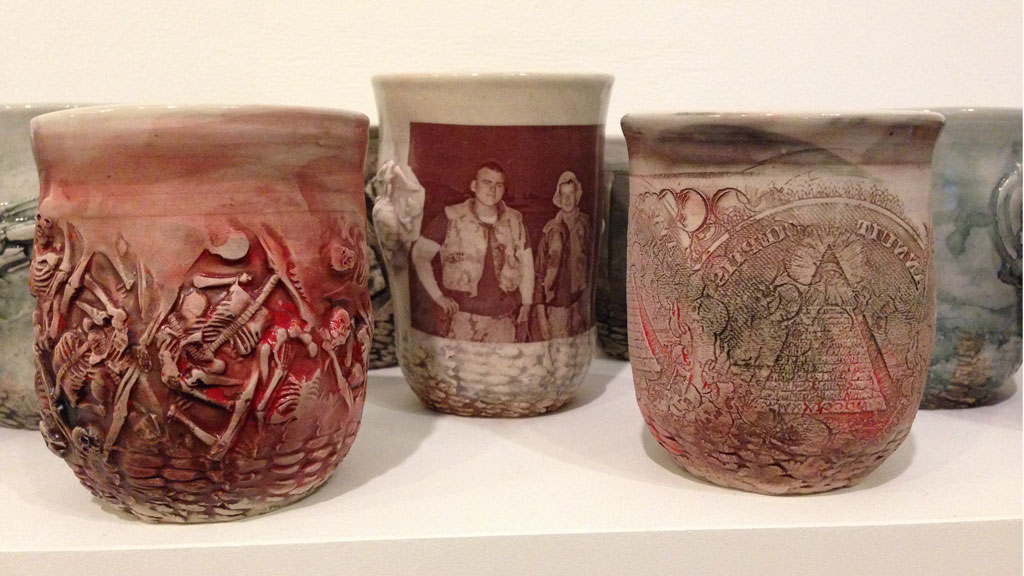
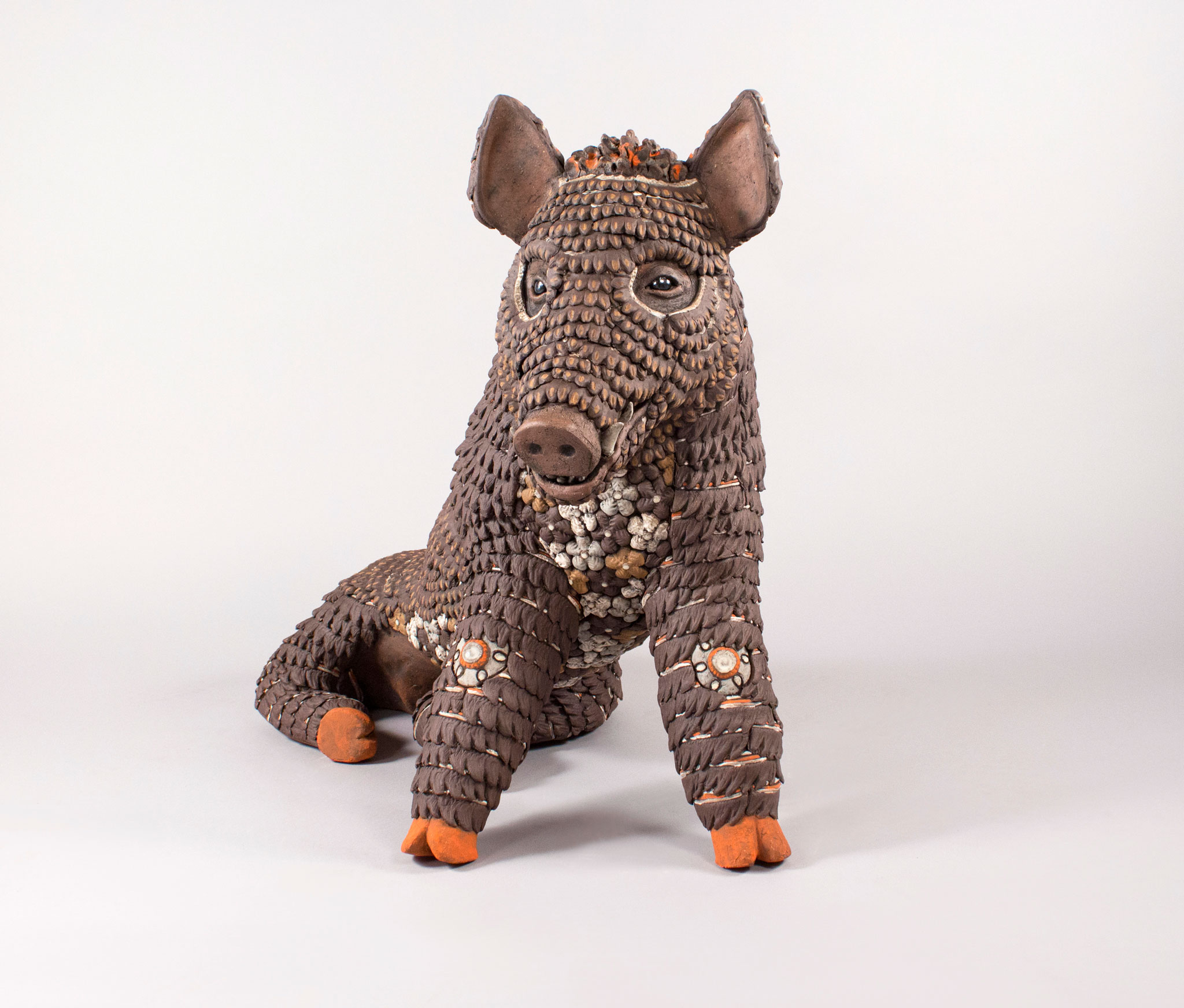
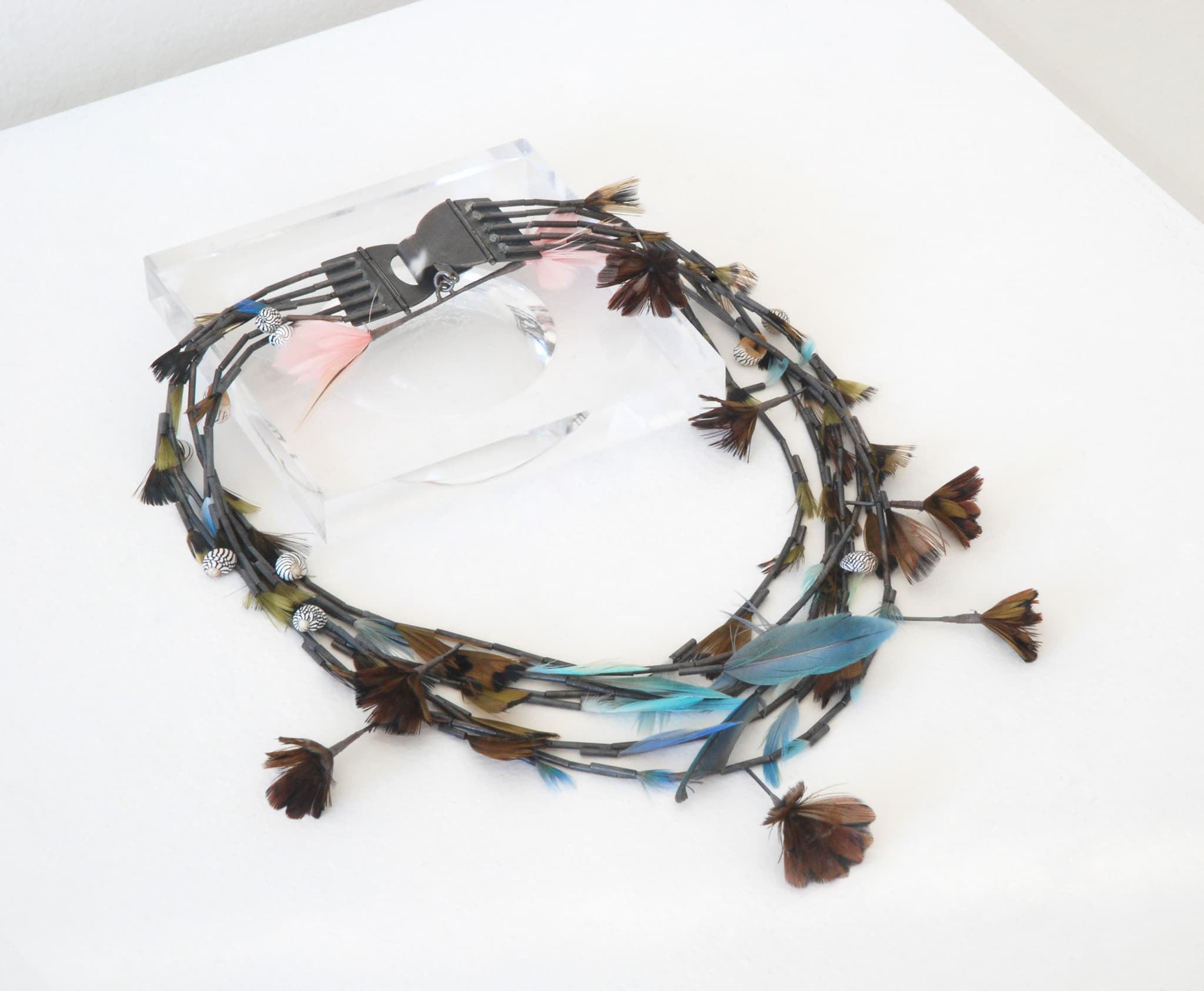
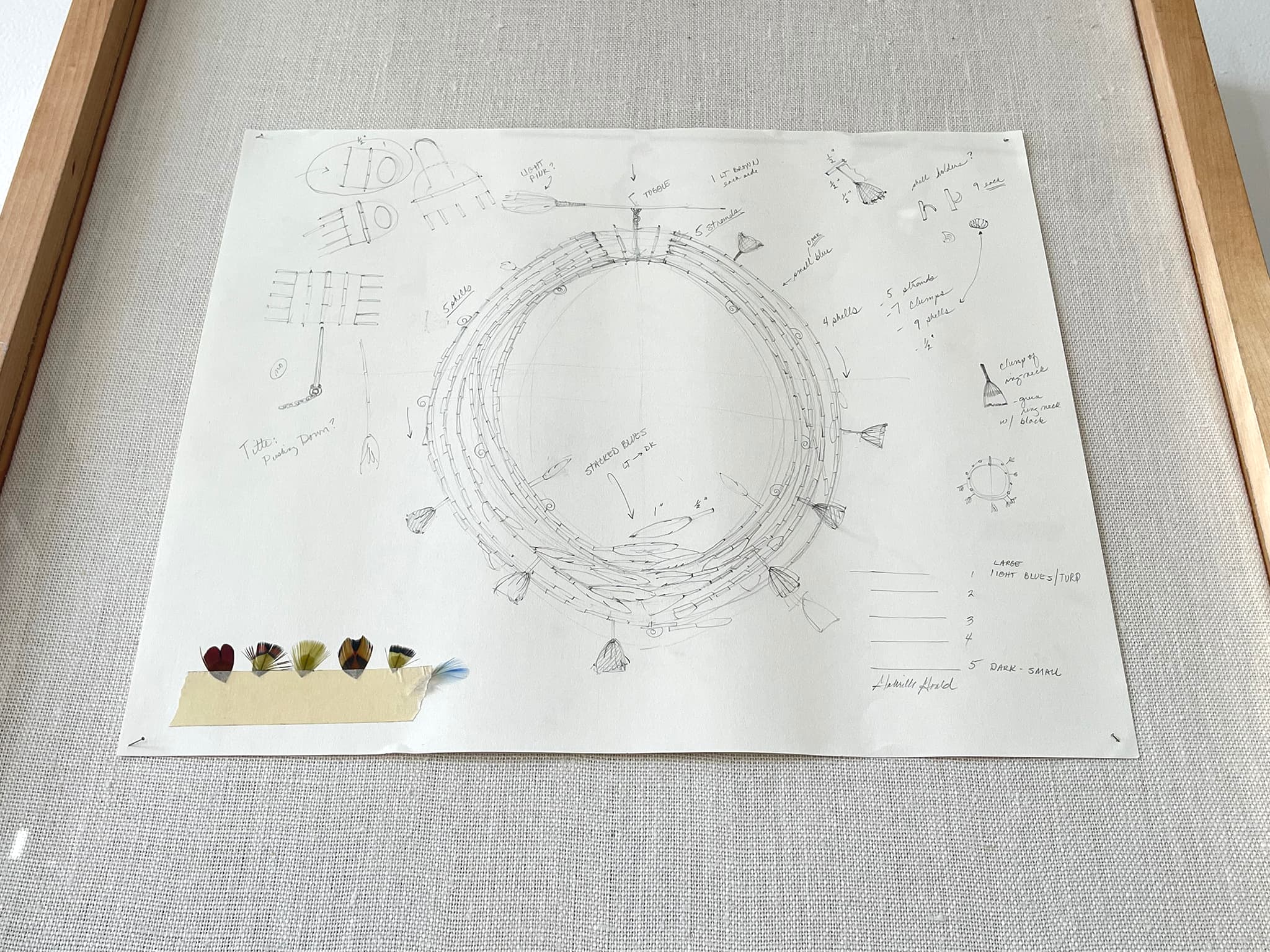
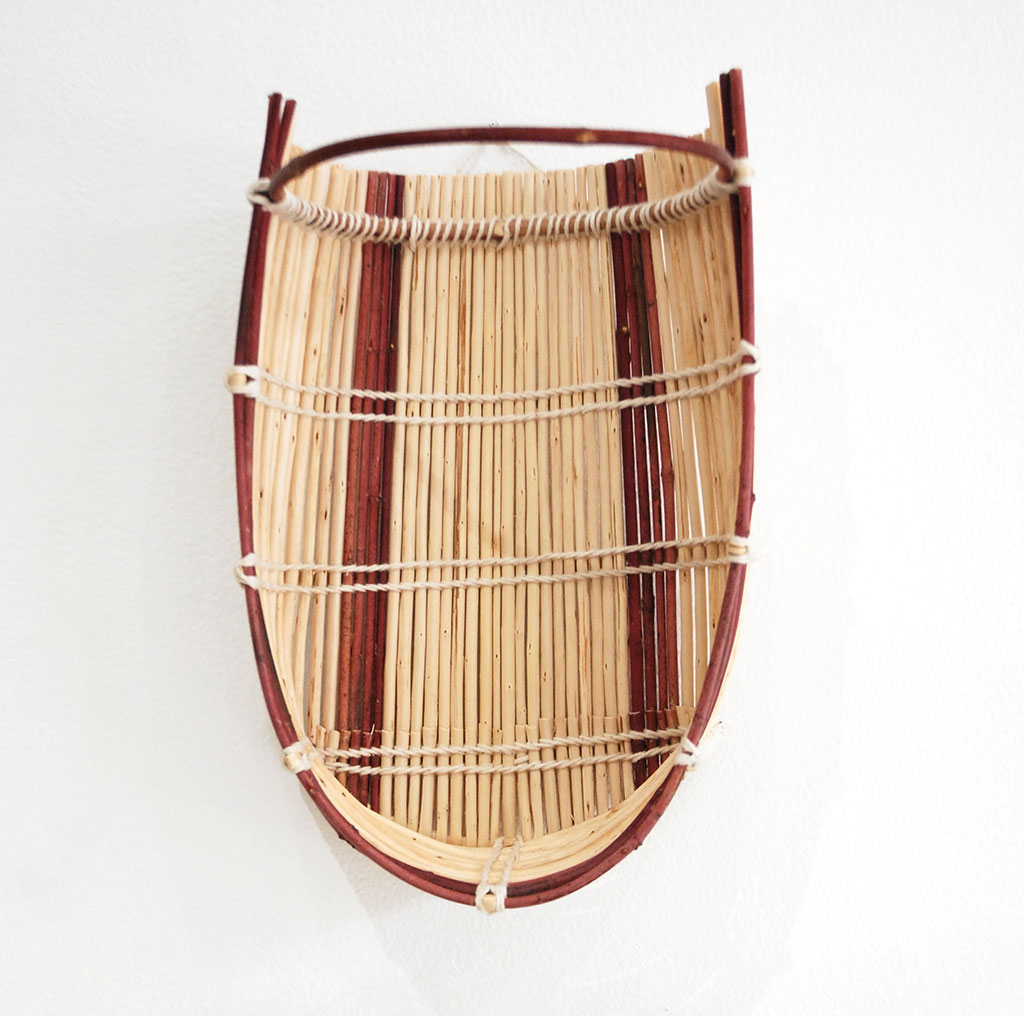
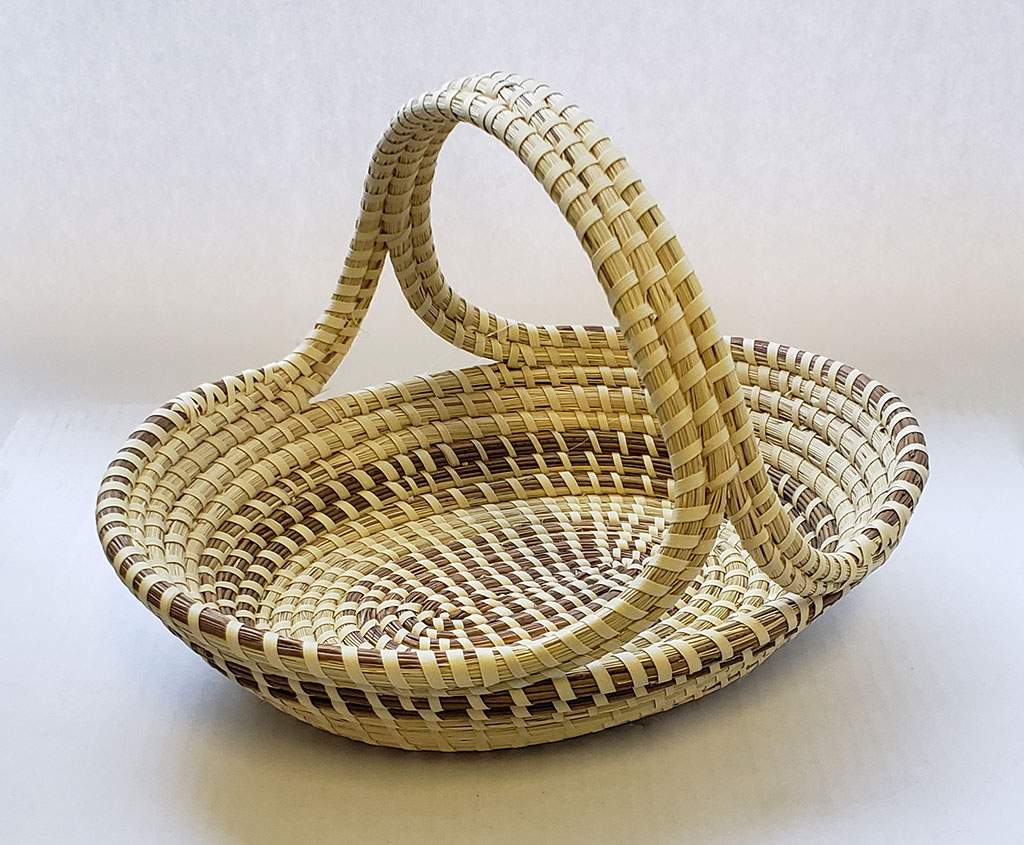
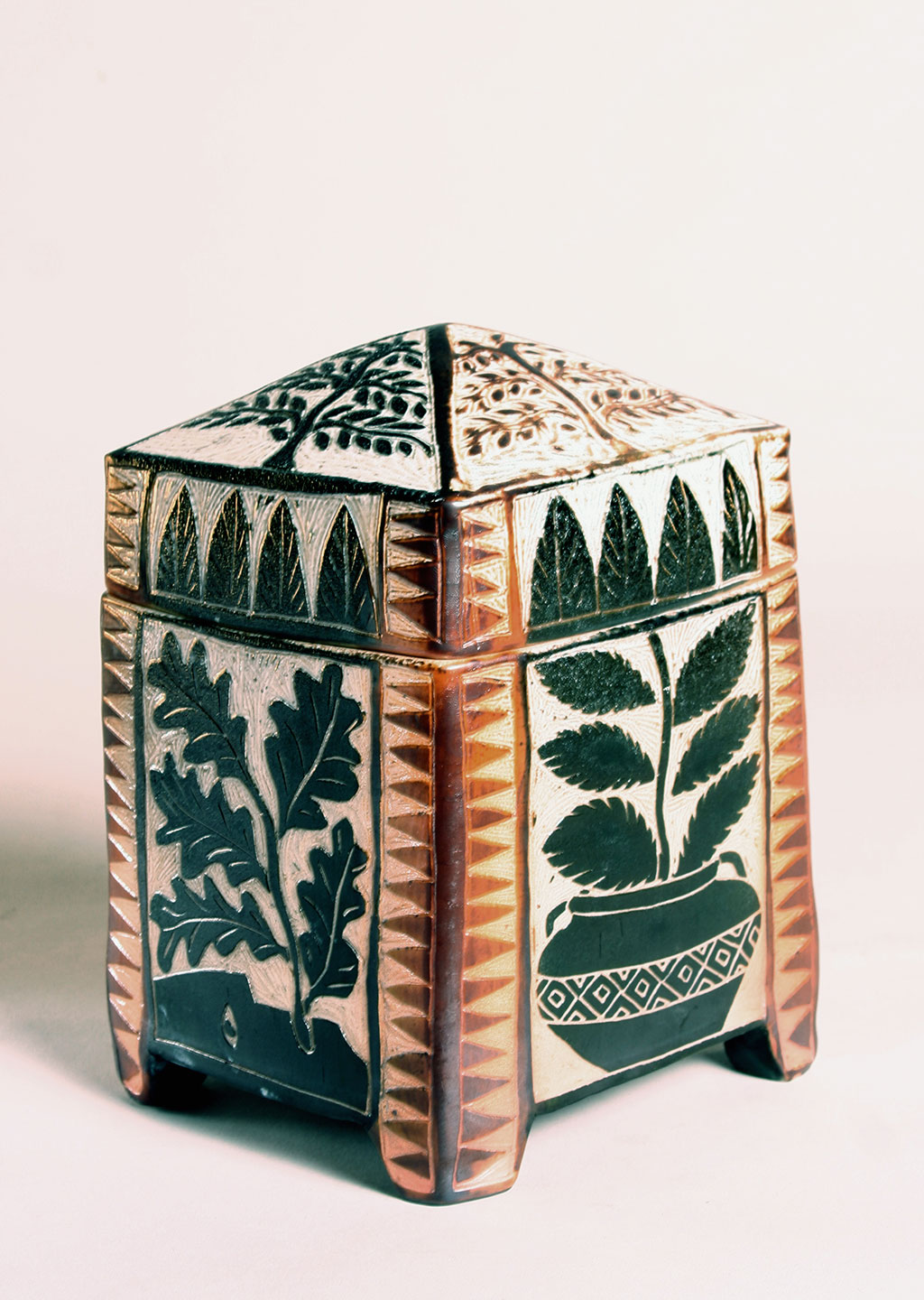
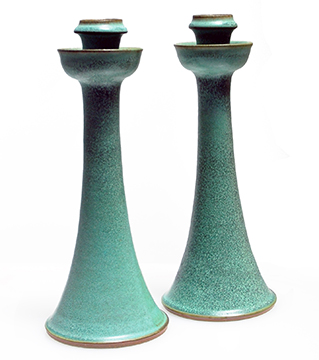
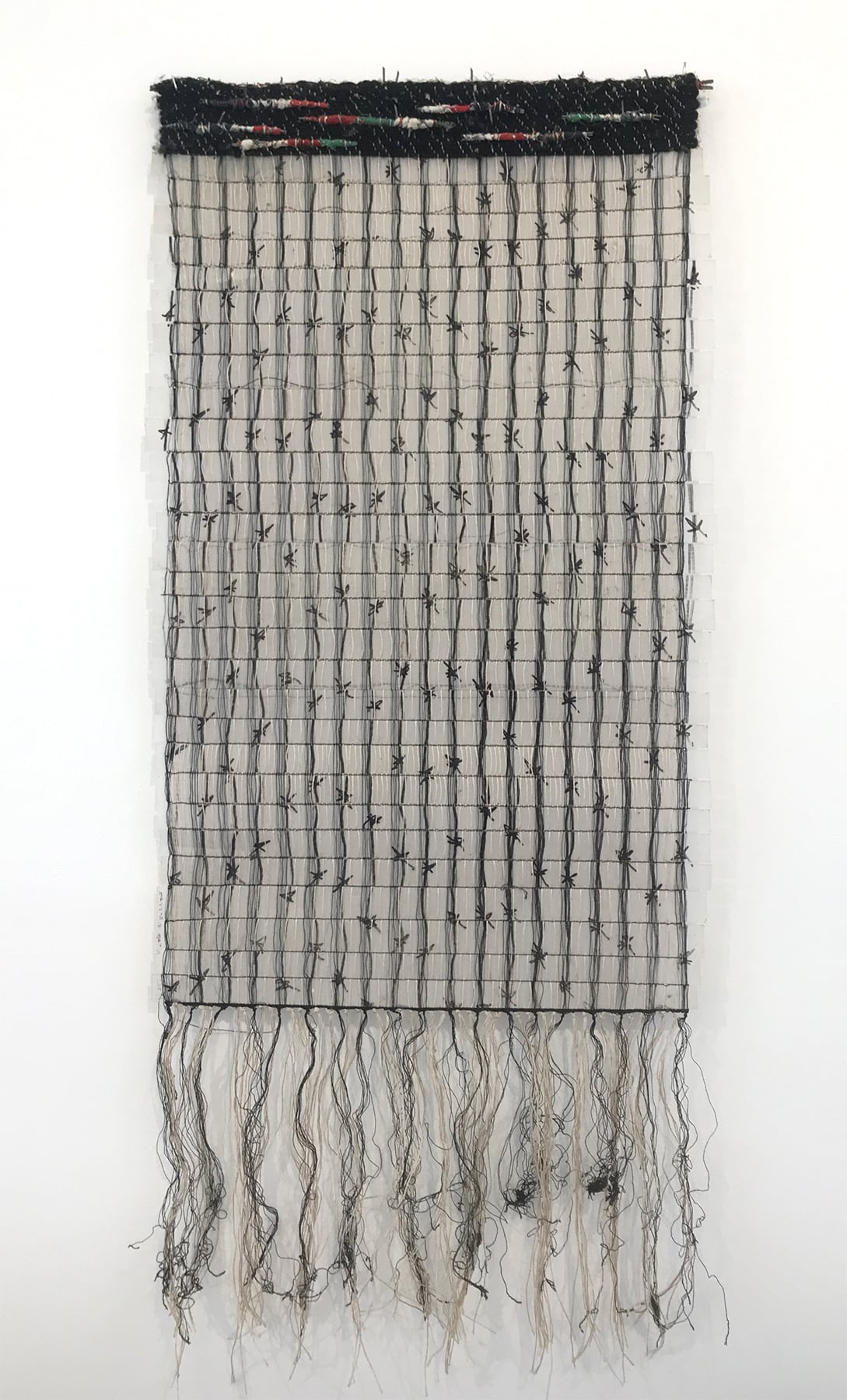
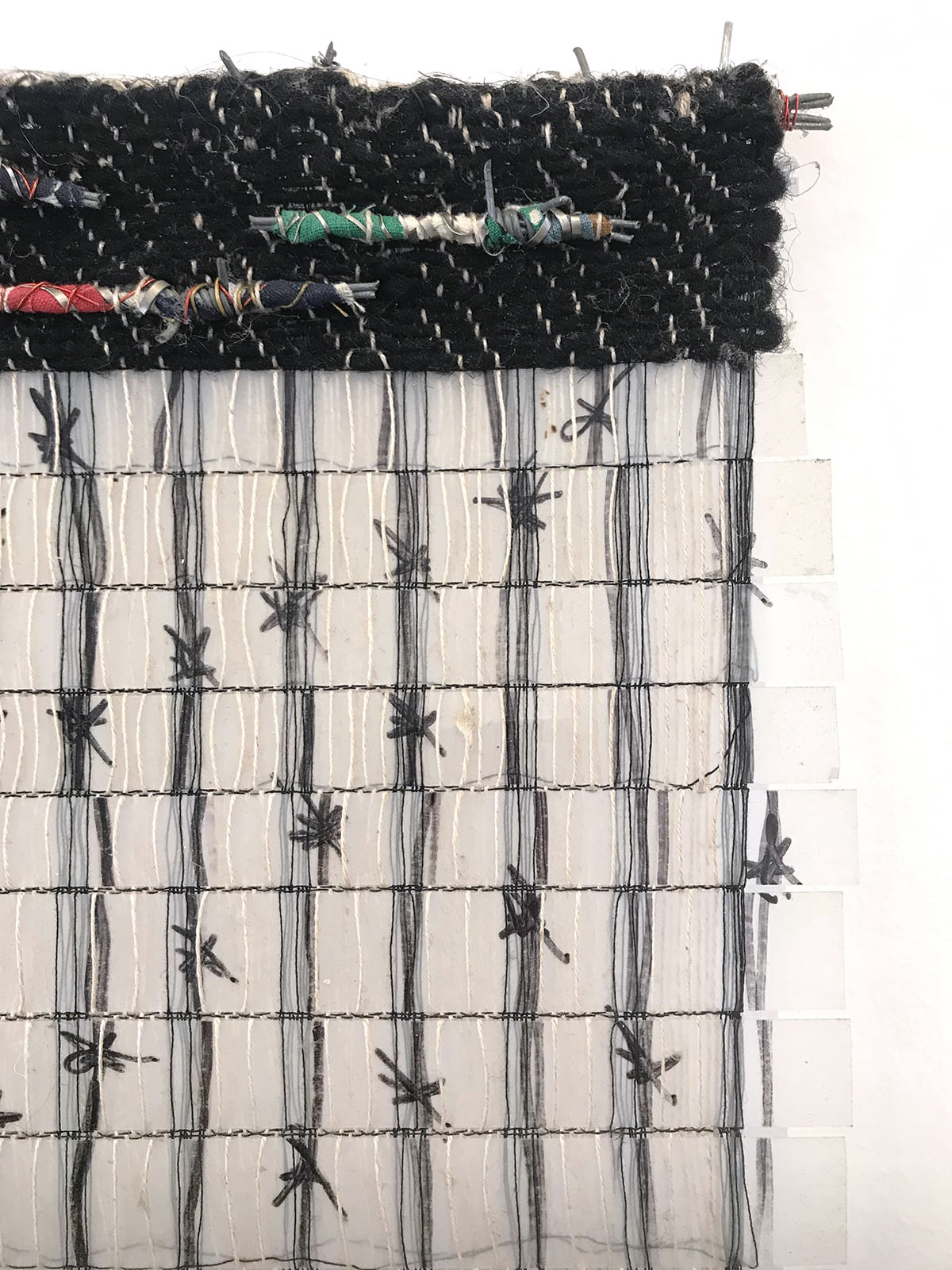
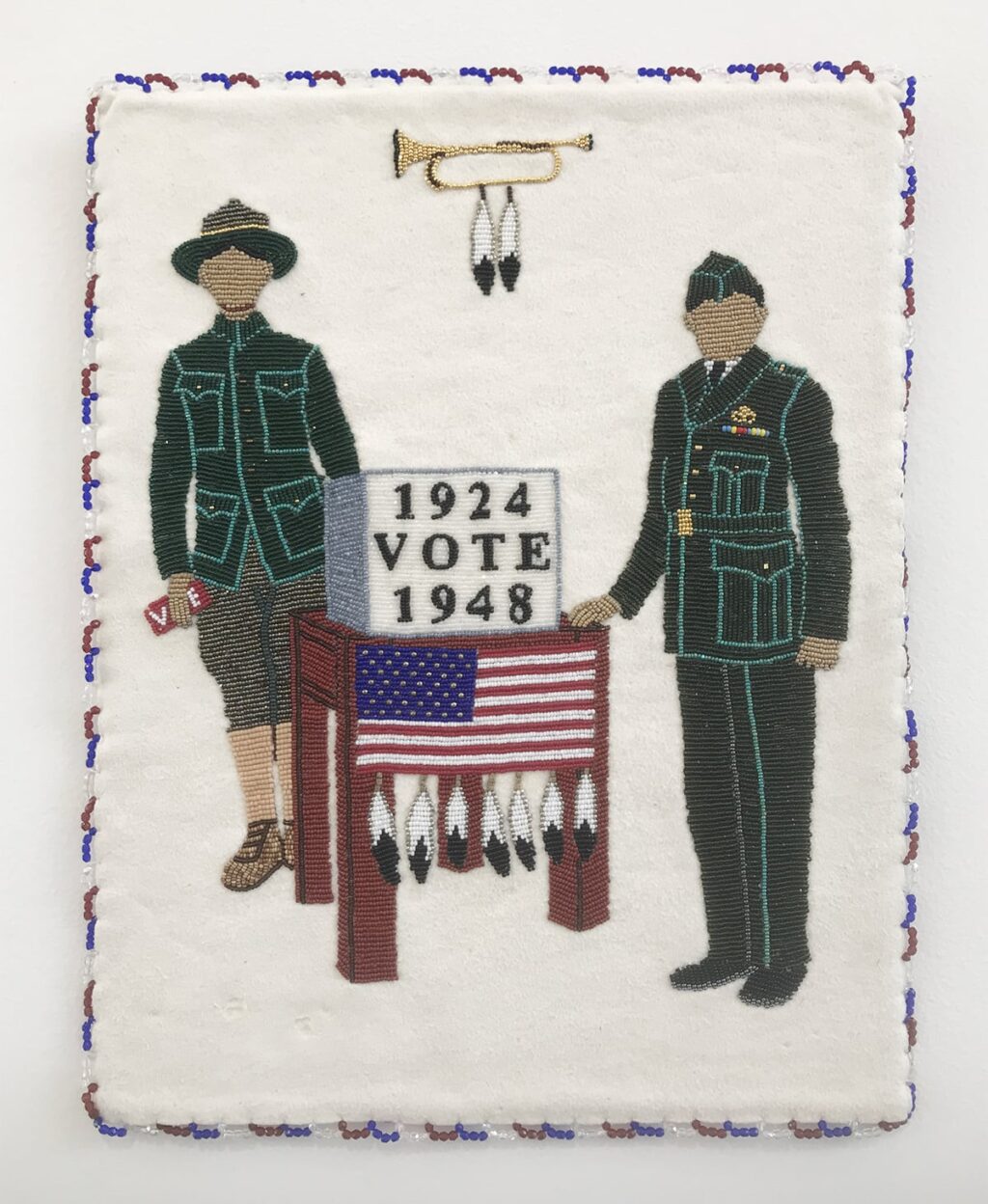
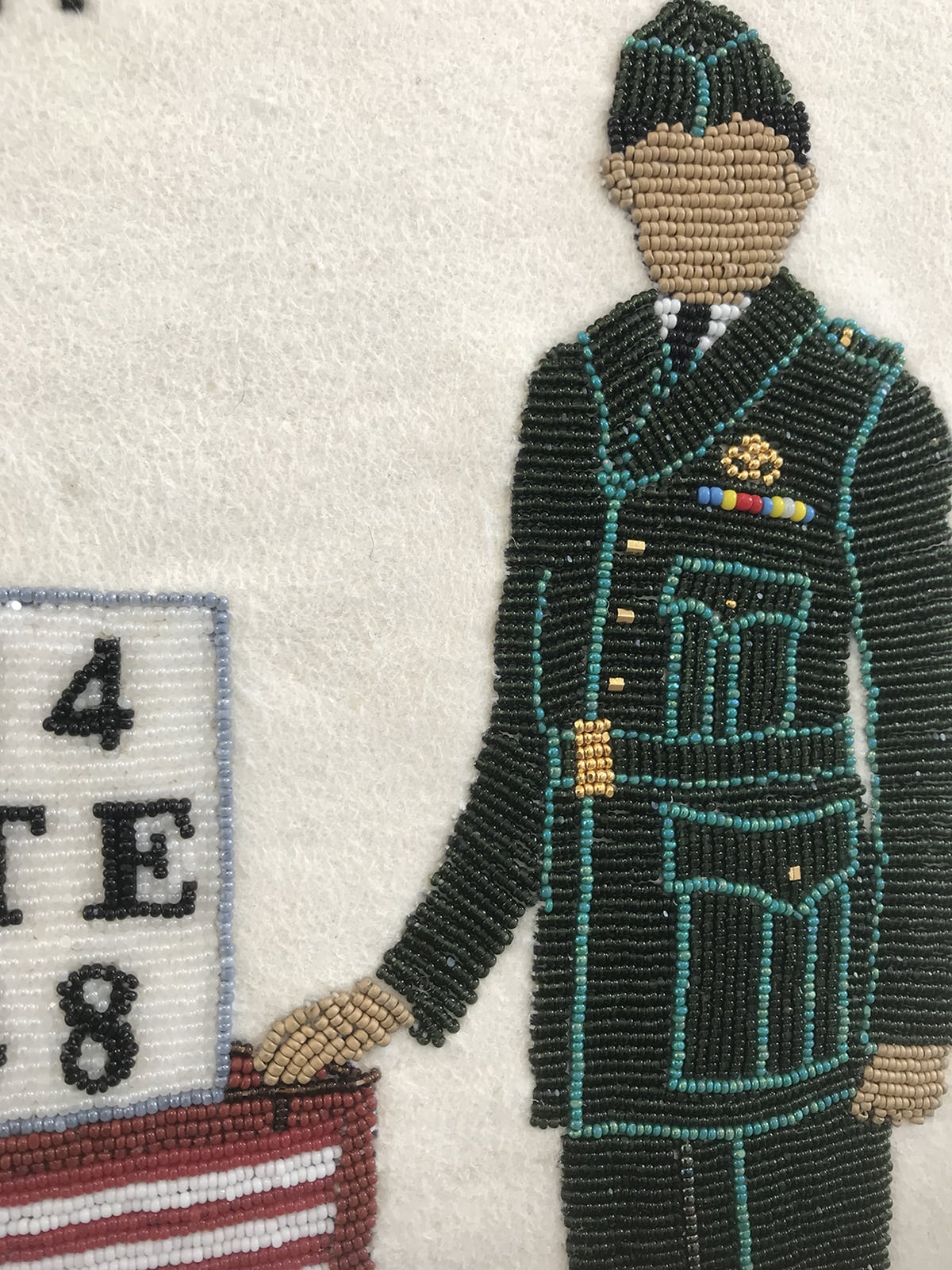
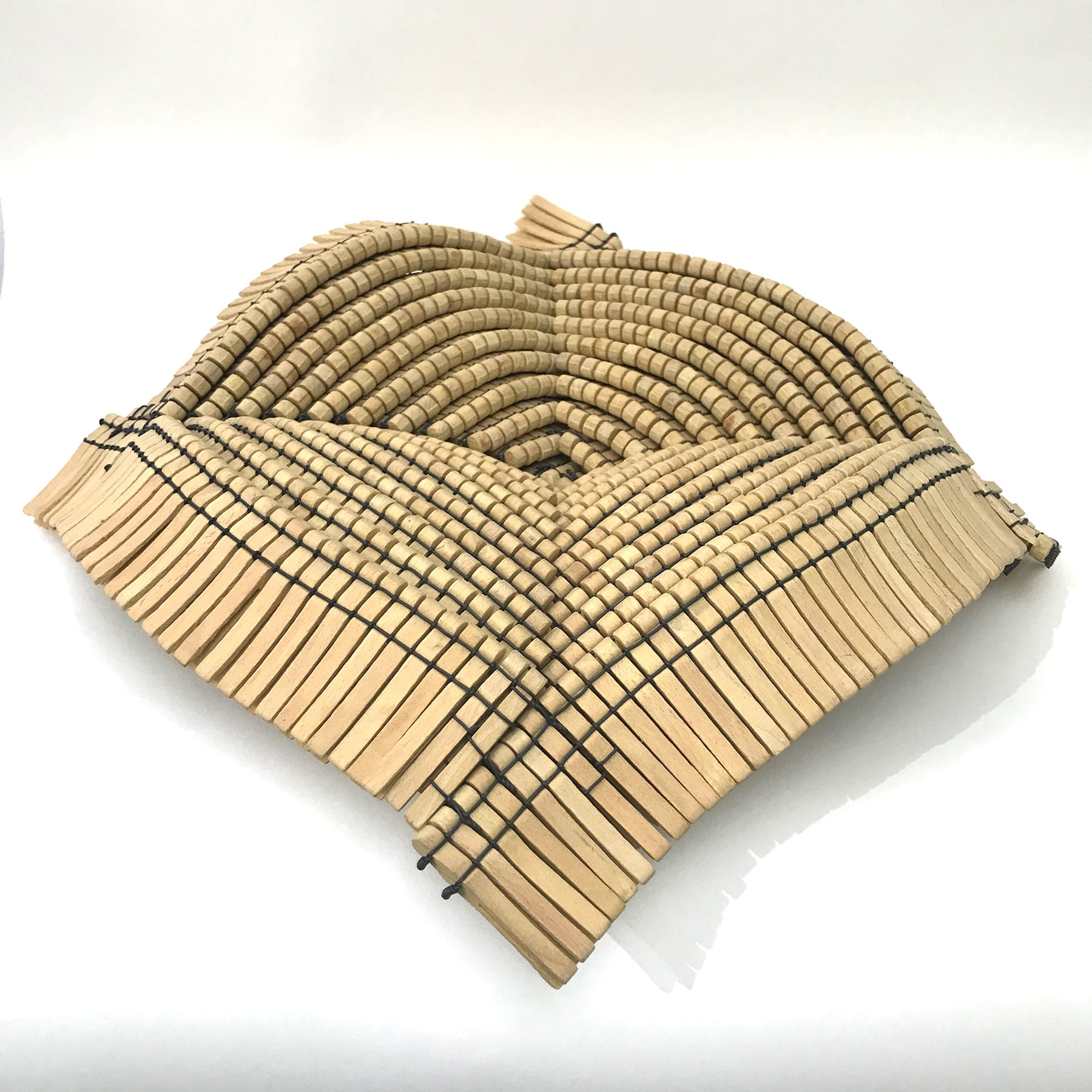
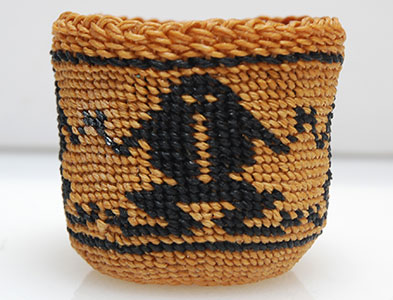
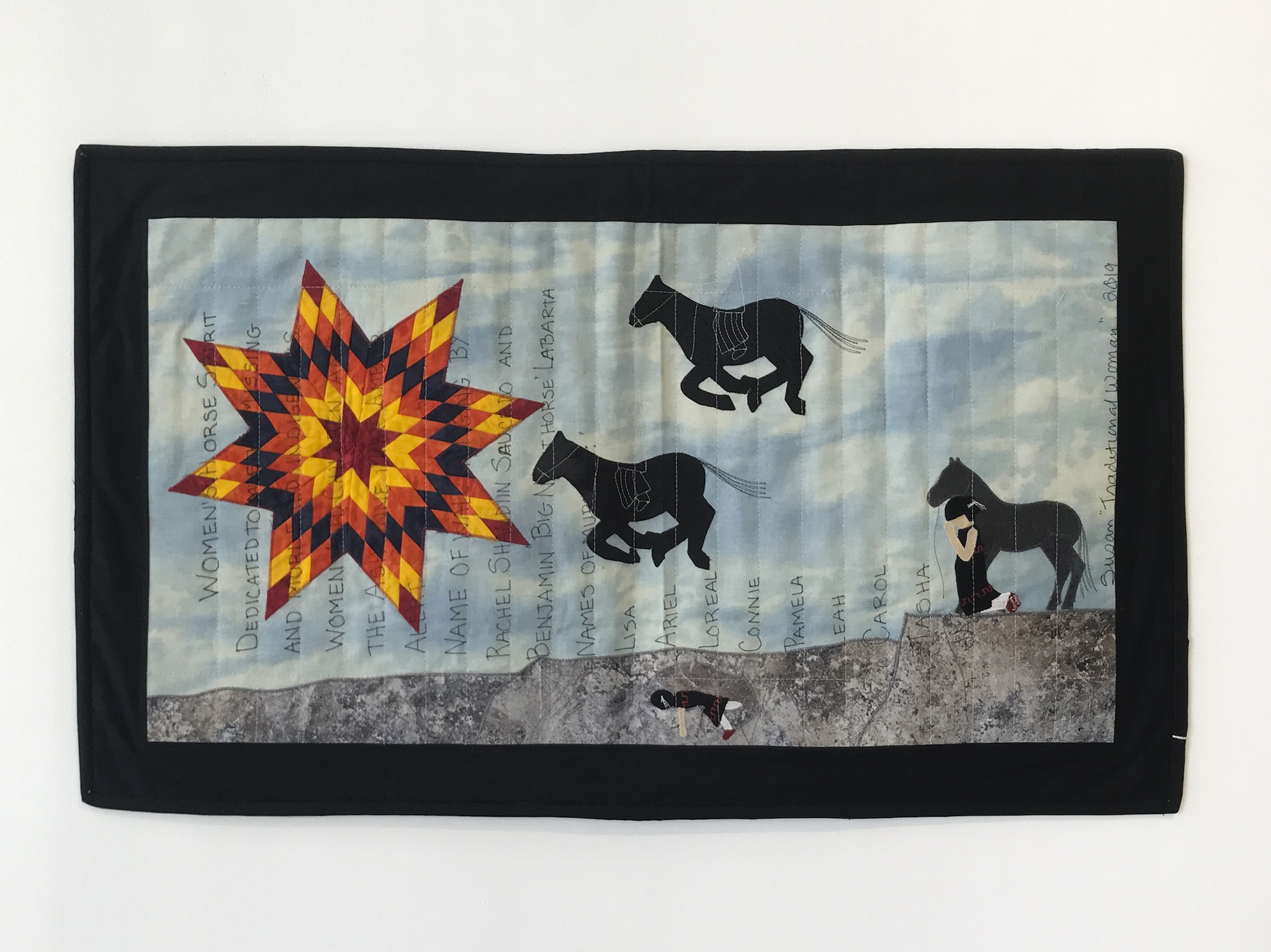
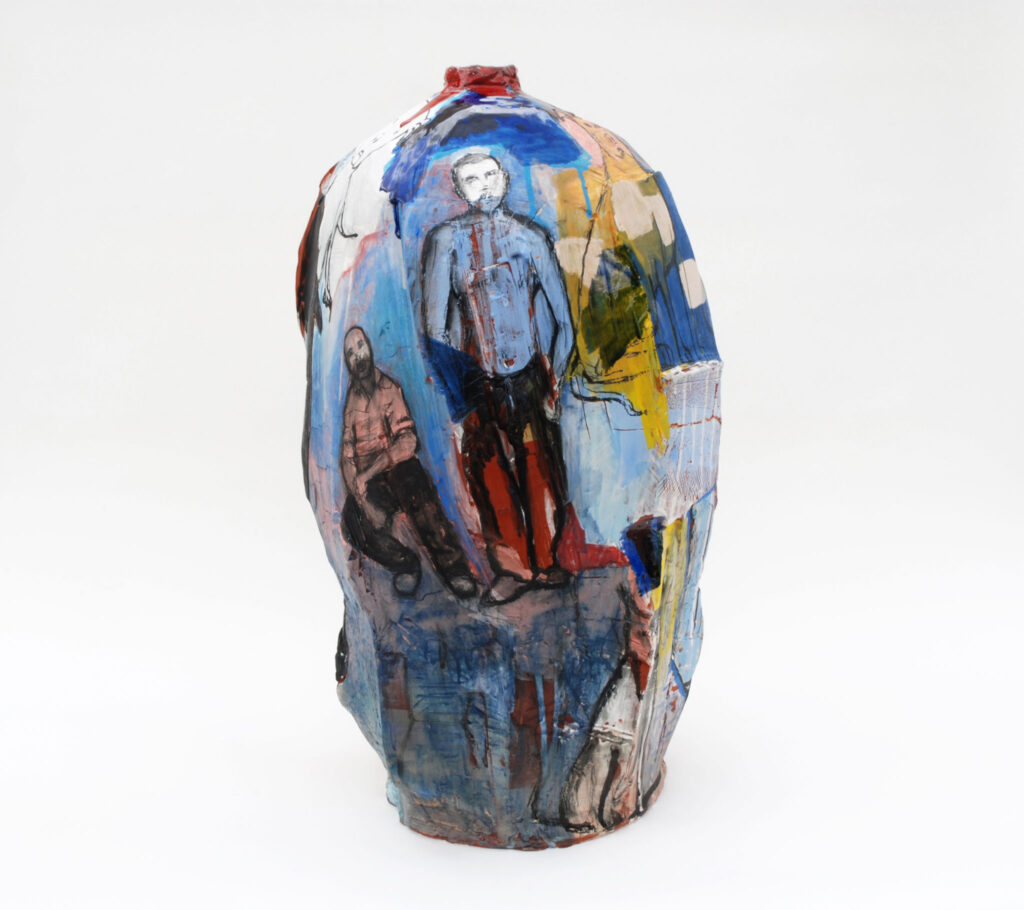
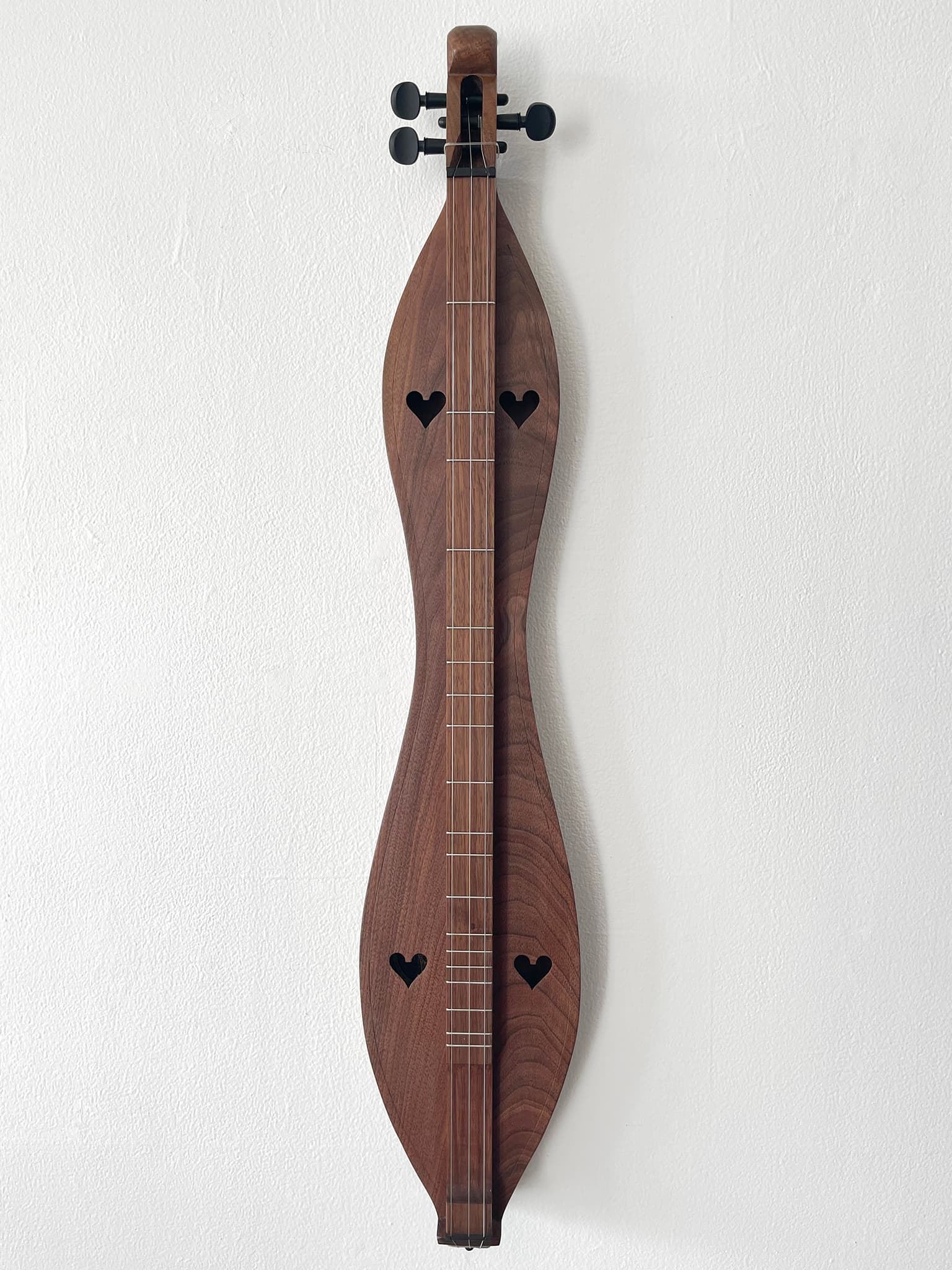
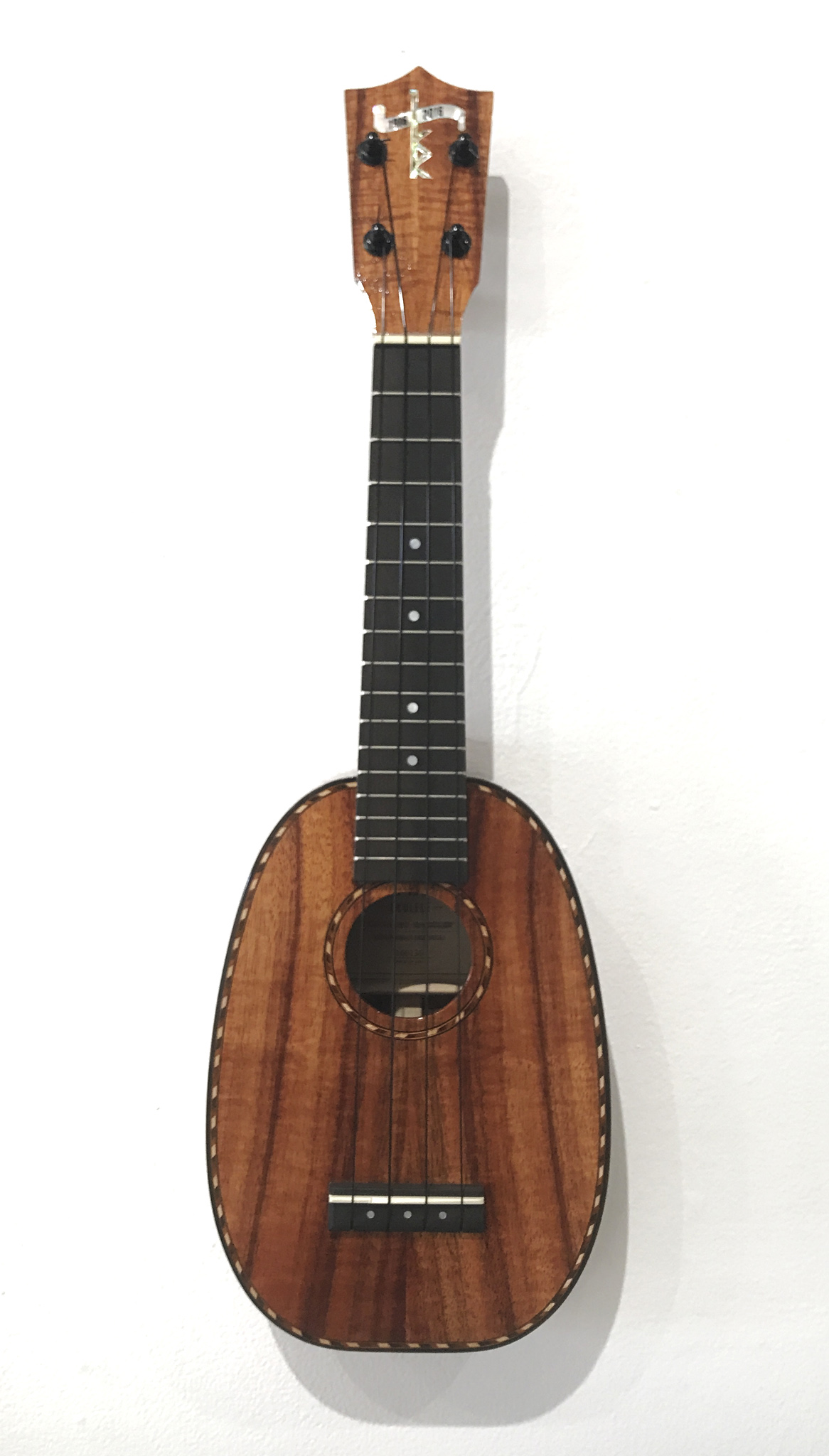
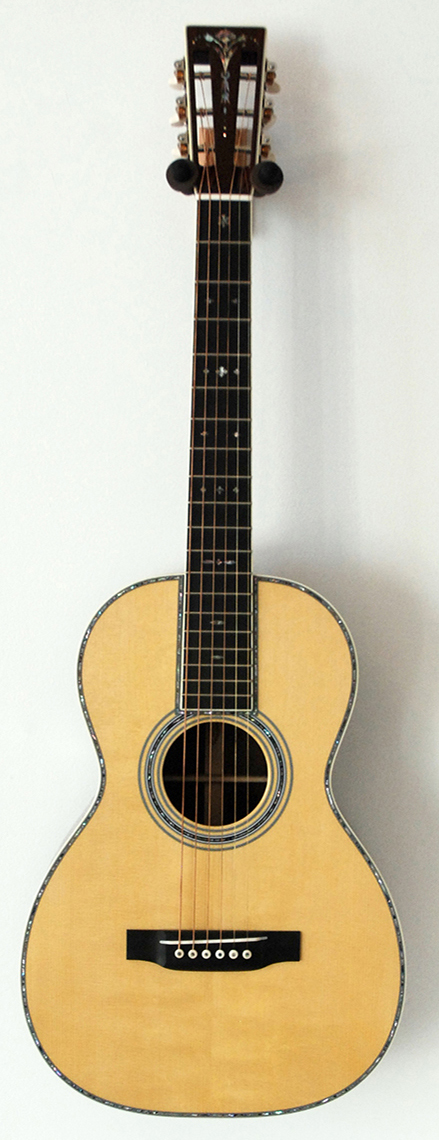
The Craft in America Center is supported, in part, by the Los Angeles County Board of Supervisors through the Los Angeles County Department of Arts & Culture. www.lacountyarts.org

Who Inspires You?
“Having come from a family of my mother who is a really powerful black female and my grandmother who was an educator, who was really a powerful black female…So I feel like it’s something I am really compelled to carry on.”
– Alison Saar
LESSON OVERVIEW
In this lesson students will learn about the artists Alison Saar, Betye Saar, and Maddy Leeser whose works are inspired by the artist Simon Rodia as well as their deep interest in history, identity, and African American culture, whose style encompasses a variety of personal, artistic, and cultural references that reflect their own experiences. Their sculptures, installations, assemblages, and prints incorporate found objects including wood, old tin ceiling panels, nails, shards of pottery, glass, fabric, photographs, and other objects from popular culture. The resulting figures and objects become powerful totems exploring issues of gender, race, heritage, and history.
Grade Level: 7–12
Estimated Time: five or more 45-minute class periods
Craft In America Theme/Episode: INSPIRATION
DOWNLOAD SUPPORTING MATERIAL
HOME
Full Guide & Worksheets
Background Information
Lesson Overview
Teaching Tips
for Teachers
Further Information
Resources for Teaching
Vocabulary
Vocabulary & Key Terms
Discussion Questions
for Students
Worksheet #1
for Students
Worksheet #2
for Students
Viola Frey
Most recognized for her ceramic sculptures, Viola Frey was a multi-disciplinary artist who worked in ceramic, bronze, and glass, as well as working in painting, drawing, and photography. Born in Lodi, CA in 1933, Frey took classes at Stockton College after graduating from high school, and soon after received a scholarship to attend California College of the Arts. She graduated from CCA in 1955 with a BFA in painting, although she was continually drawn to the ceramics department, saying “It seemed more like the real world. It was a community.” She continued her studies at Tulane, but decided to leave early in order to immerse herself in the ceramics community of Port Chester, NY, becoming involved with the Clay Art Center. Frey later relocated to the Bay Area, where over the next many decades she continued to refine her artistic practice. An avid collector of books, art, and other objects, she eventually incorporated bricolage into her creations. She received fellowships from the National Endowment of the Arts and the American Craft Council, and her work has been shown in galleries and museums nationwide, including the Whitney Museum of American Art (NY, NY), the Oakland Museum of California, and Renwick Gallery of the National Collection of Fine Arts, Washington, DC. Frey was also a dedicated arts educator and held a full time teaching position at CCA from 1971 until her retirement in 1999. The school honored her contributions with an honorary doctorate and the title of professor emerita. Frey passed away in her home in Oakland, CA in 2004.
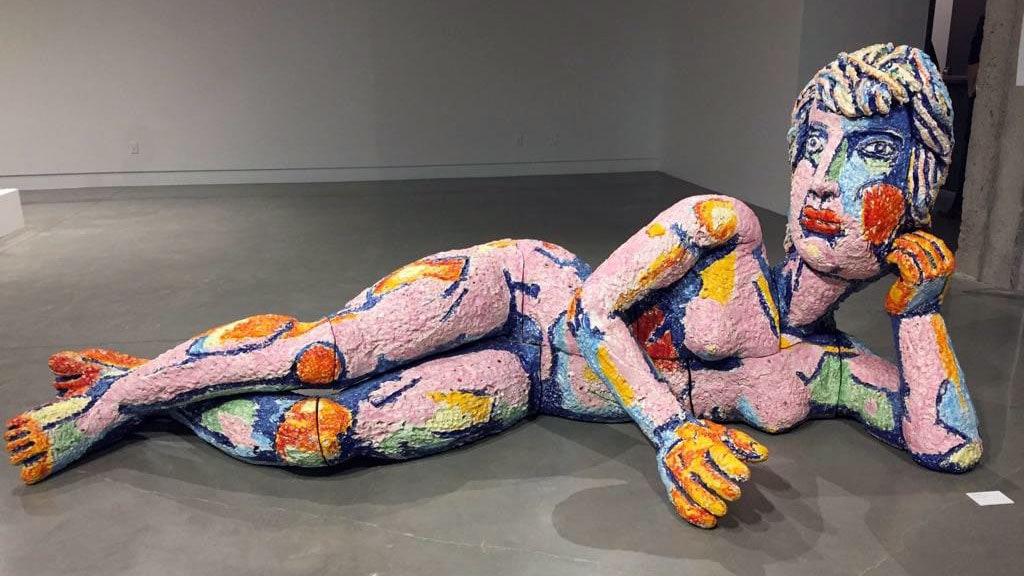
Simon Rodia
Simon “Sam” Rodia (b. 1879, Italy) was an artist most known for his large-scale installation in Watts, California, entitled Nuestro Pueblo, but more commonly referred to as Watts Towers. Rodia was born in a small town near Naples, Italy and immigrated to the United States with his family in the early 1890s. His early life is sparsely documented, but upon moving to the US, Rodia moved to the West Coast and found work in rock quarries, logging and railroad camps, and construction. He eventually settled in Long Beach around 1911.
Several years later, in 1921, he purchased a lot at 1765 East 107th street in the Watts district of Los Angeles, on which to construct his large-scale masterpiece. Rodia worked on Nuestro Pueblo for over 25 years, in the evenings and on weekends, after his various day jobs, until its completion in 1948. He designed and built the Towers entirely himself, constructing them out of masonry, tile, and various found objects, and decorating the surfaces with singular, hand-placed mosaics. Several structures compose the complete installation, the largest of which stands at 99 1/2 feet tall. Rodia gifted the property to his neighbors before retiring to Martinez, CA, where he died in 1965. The Watts Towers were his last work of art.
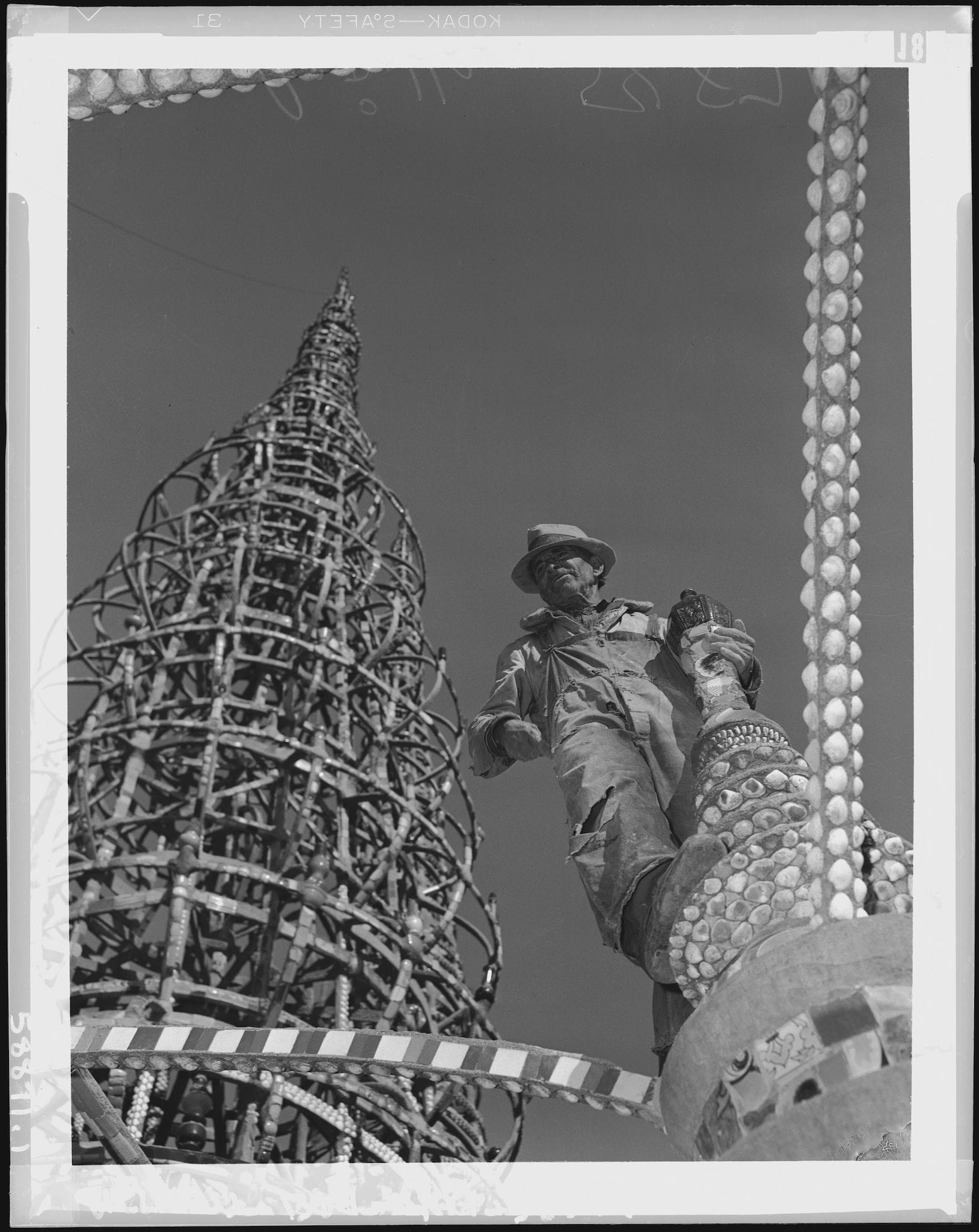
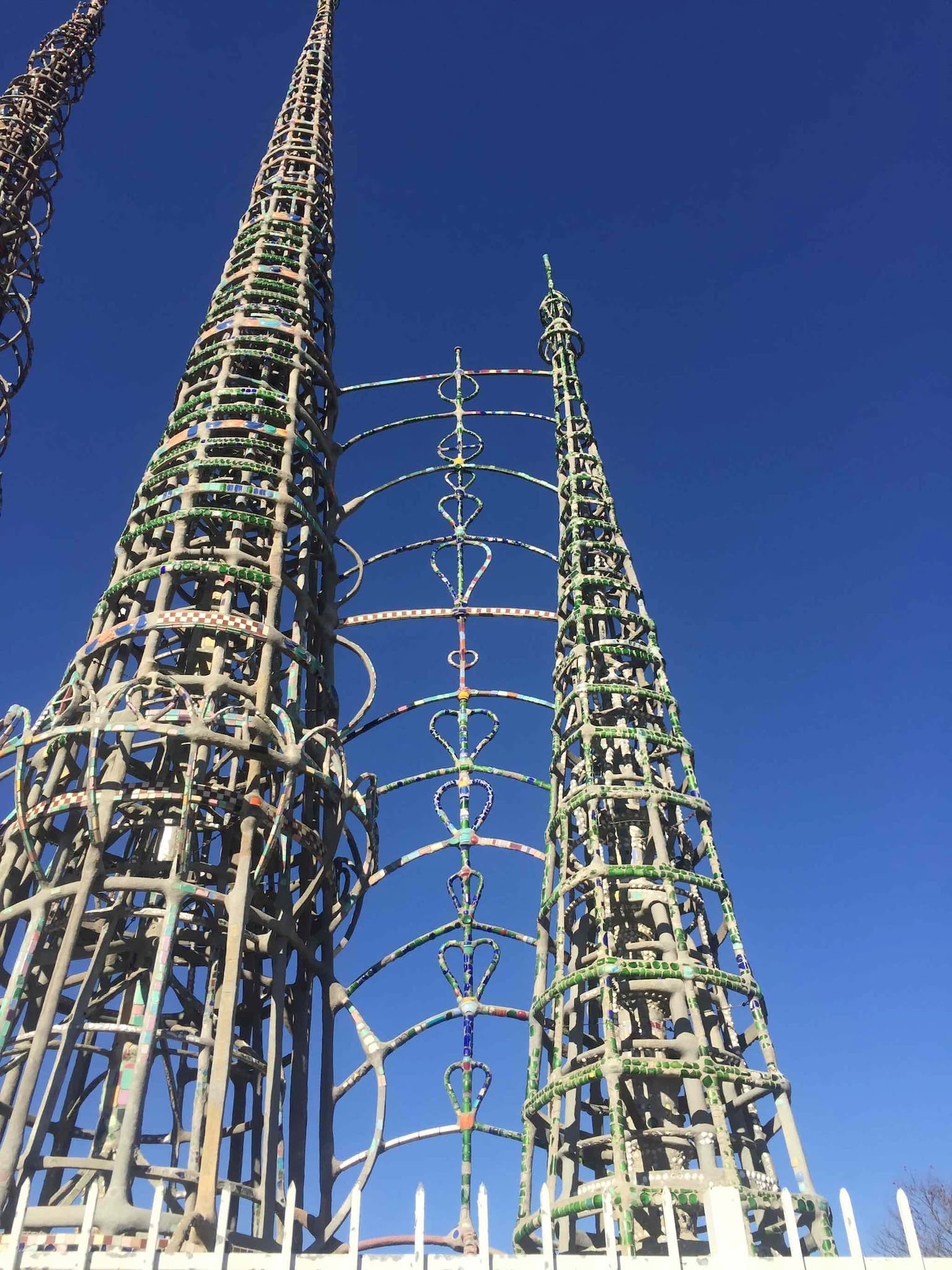
Jim Campe
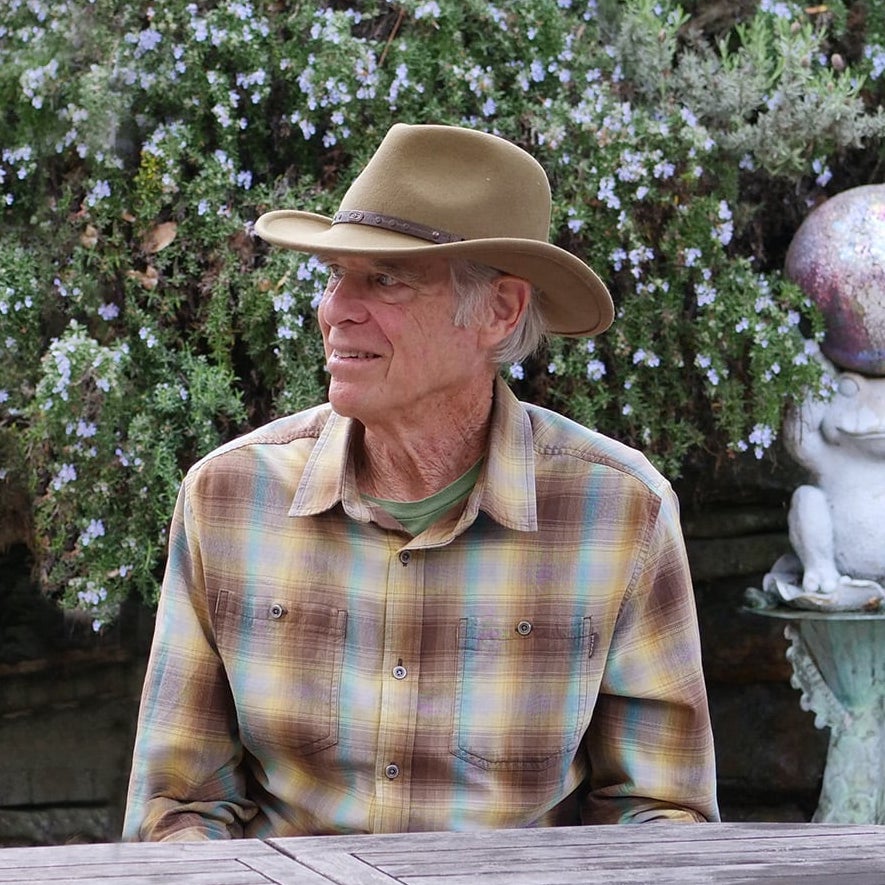
Jim Campe lectured in Architecture at UC Berkeley and held an experimental studio course for undergraduate students with his colleague, architect, author, and educator Sim Van der Ryn. The course was entitled “Making a Place in the Country -The Outlaw Builder’s Studio,” and it involved on-site building construction and student collaboration in building their own shelters and communal buildings, using salvaged wood and found materials.
Sim Van der Ryn
Sim Van der Ryn is an architect, author, and educator dedicated to incorporating ecological principles into his work. He was a professor of architecture at UC Berkeley for 40 years and was California’s State Architect for Governor Jerry Brown in the late 1970s. He designed and built the State’s first energy efficient and climate-responsive building. He has long been incorporating sustainable practices into architecture and design and is recognized for his contribution and influence in shaping the Green Architecture and Sustainable Design movement. He is the President of the Ecological Design Collaborative, and the author of several influential books, including Design for an Empathic World: Reconnecting People, Nature, and Self, Sustainable Communities, and Ecological Design. He and his colleague Jim Campe founded the “Outlaw Builders,” an irreverent and visionary group experimenting with new and more sustainable practices.
simvanderryn.com